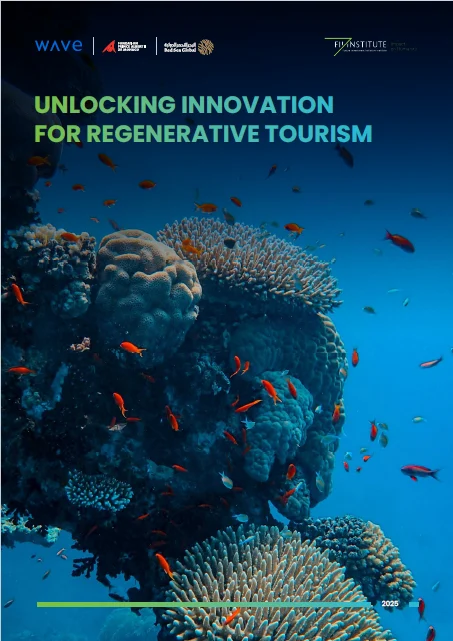
Regenerative tourism is positioned at the intersection of economic growth, nature conservation, and community resilience, with 50% of global tourism being coastal. While hospitality leaders recognize the market's potential, many express the need for more data and clarity to confidently engage in this evolving landscape. The report uncovers real-world case studies and corporate use cases that showcase successful regenerative practices, yet highlights significant barriers to widespread adoption. Curious about how regenerative tourism can reshape the future of travel and investment? Discover the insights, challenges, and opportunities that could redefine your understanding of sustainable tourism in this comprehensive report.
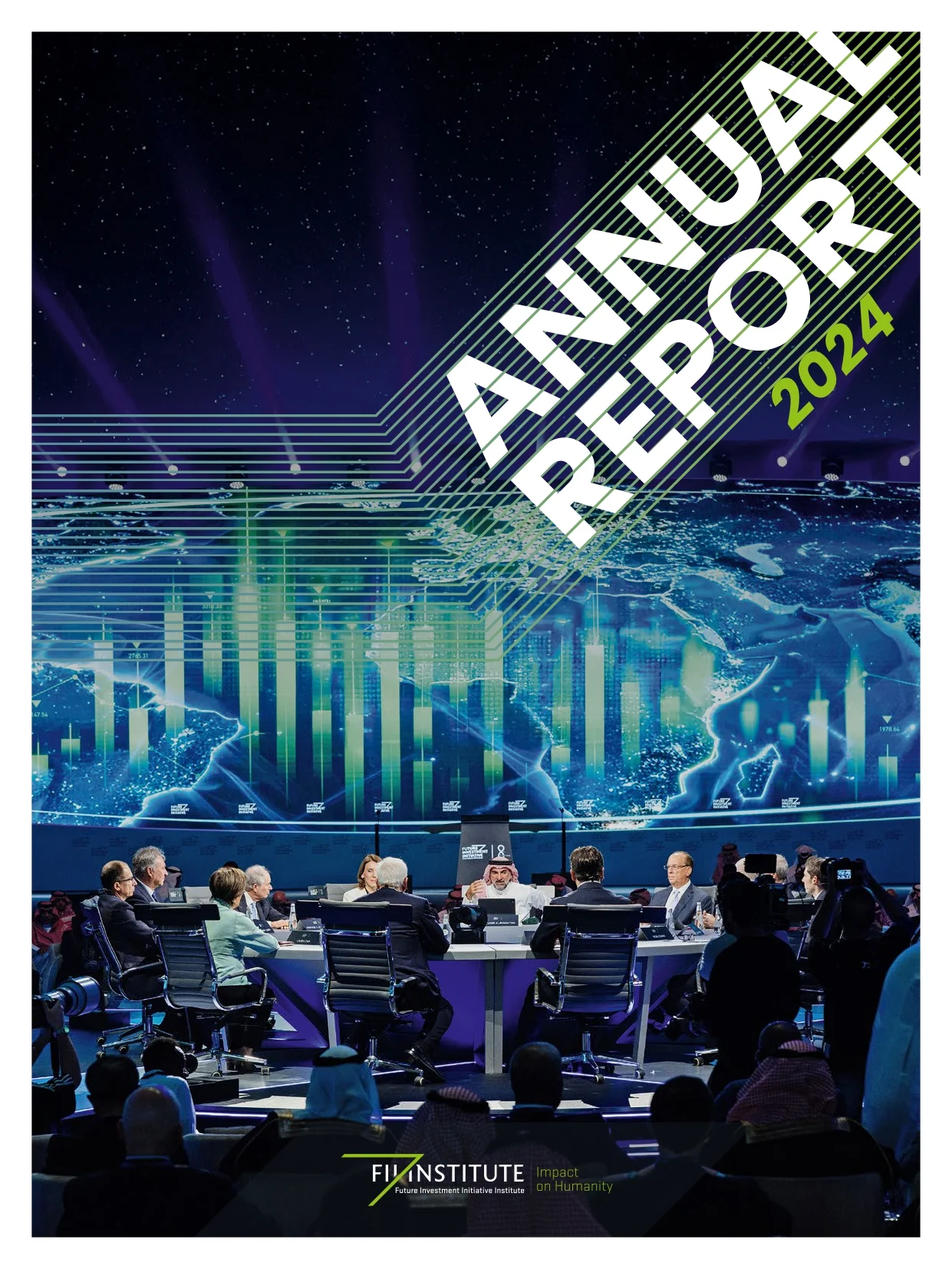
The FII Institute's Annual Report 2024 highlights its unwavering commitment to creating a sustainable future through impactful initiatives.
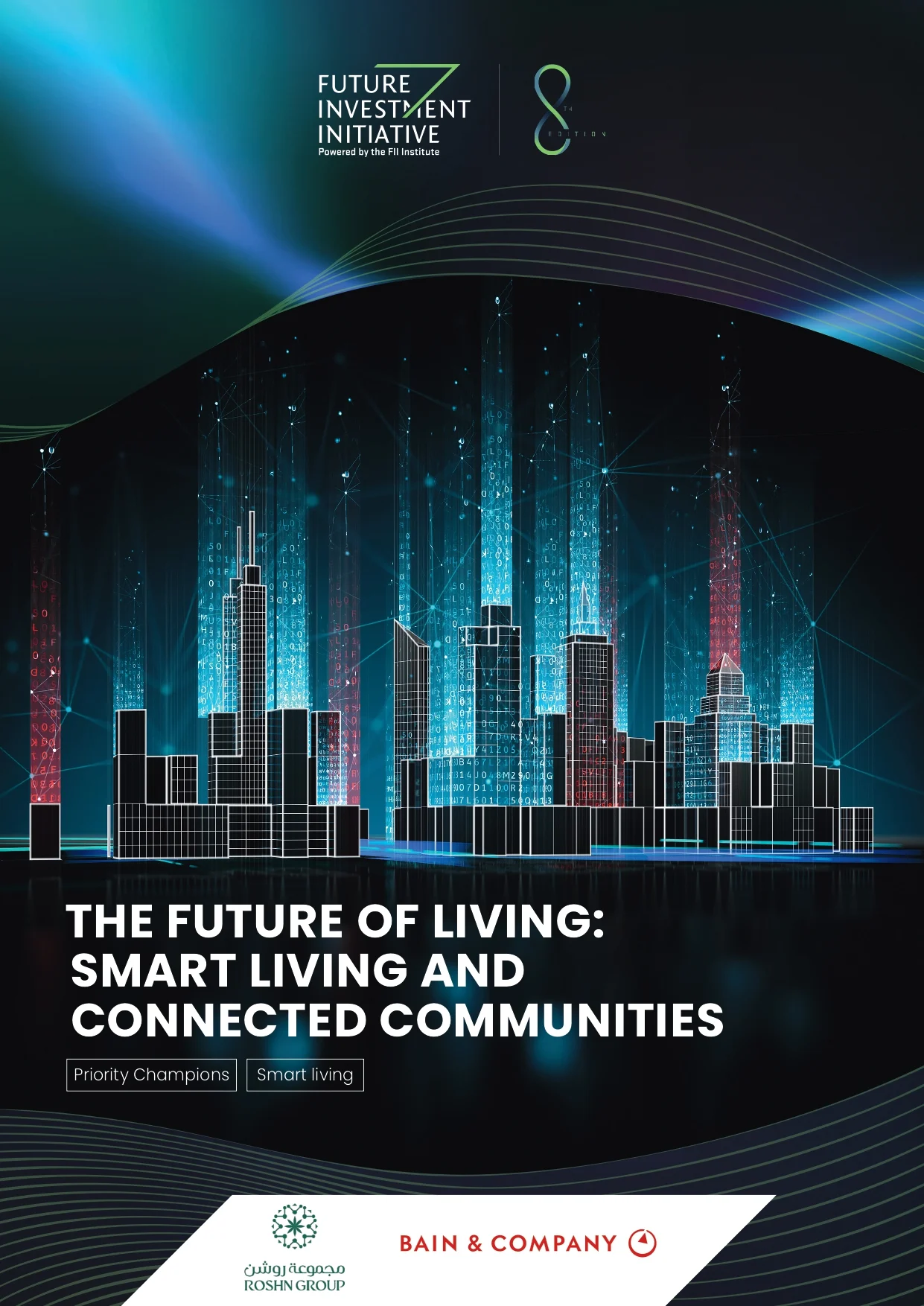
This priority champion publication in collaboration with Roshn Group and Bain & Company delves into the transformative potential of smart living and connected communities, highlighting the integration of advanced technologies to enhance comfort, efficiency, and sustainability. It addresses current industry challenges and behavioral trends, offering strategic insights to accelerate the adoption of innovative solutions. By exploring case studies and frameworks, this work sheds light on the future of urban living, emphasizing the importance of human-centric design and community engagement in creating sustainable environments.

The priority champion report in partnership with WAVE, Prince Albert II Of Monaco Foundation and Red Sea Global outlines the critical role of oceans in sustainable economic growth, emphasizing their potential to generate renewable energy, ensure food security, and create millions of jobs. It highlights the urgent need to address anthropogenic stressors like overfishing and […]

Industry 5.0 marks a shift beyond technological adoption, focusing on individual empowerment, human-centricity, personalization, decentralization, resilience, sustainability and transparency. The priority champion report in partnership with Franklin Templeton and Oliver Wyman discusses the transition to Industry 5.0, emphasizing individual empowerment, human-centricity, and sustainability, while highlighting the evolution of investment management through technological advancements and decentralized […]

The report in partnership with Kearney highlights the critical role of Public-Private Partnerships (PPPs) in addressing urban challenges such as resource constraints, social inequality, and climate change.
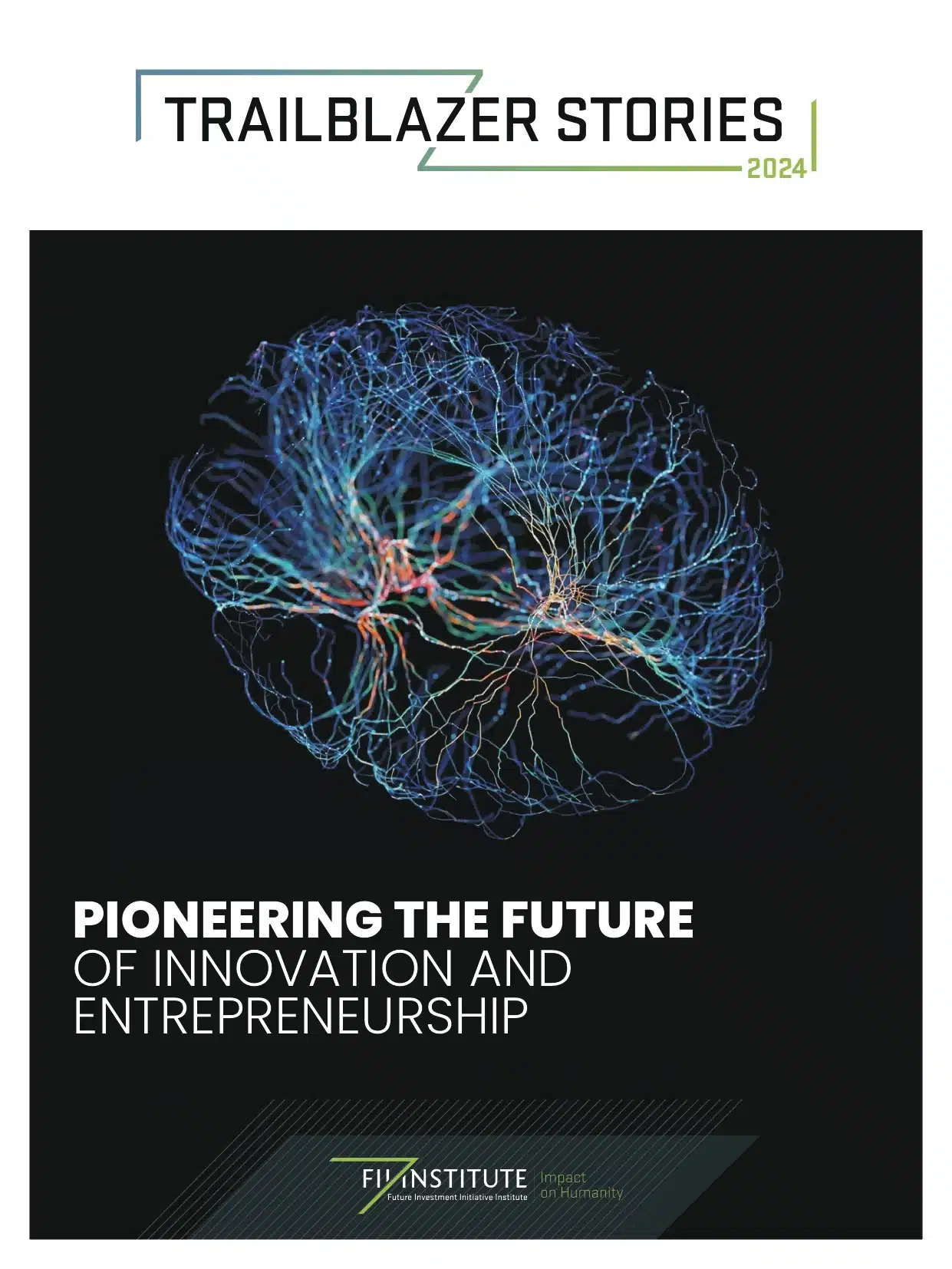
Discover the groundbreaking "Trailblazer Stories" publication, where visionary startups are reshaping our world by tackling some of the most pressing global challenges.
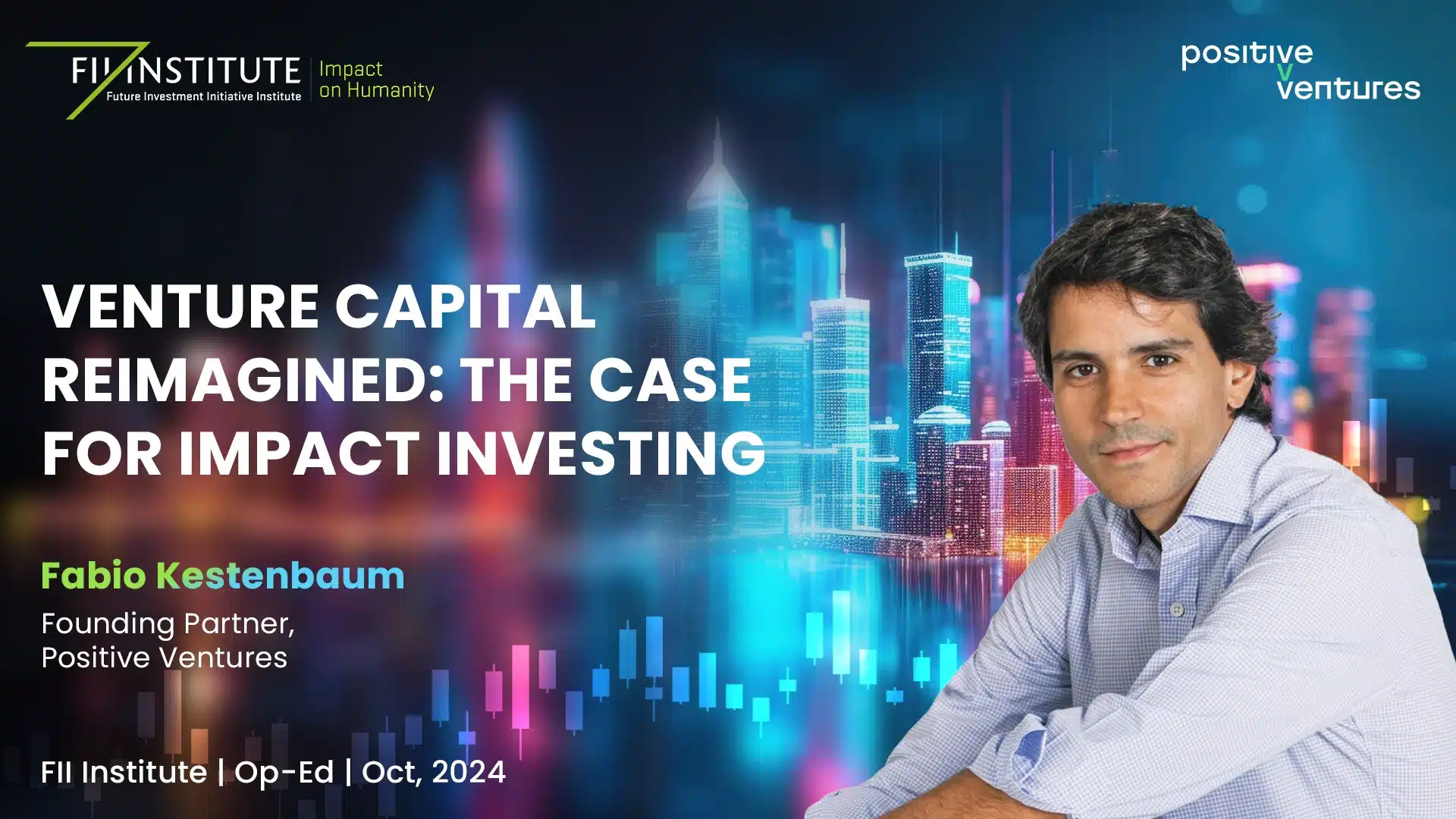
Discover how Positive Ventures, led by Founding Partner Fabio Kestenbaum, is revolutionizing venture capital through impact investing.
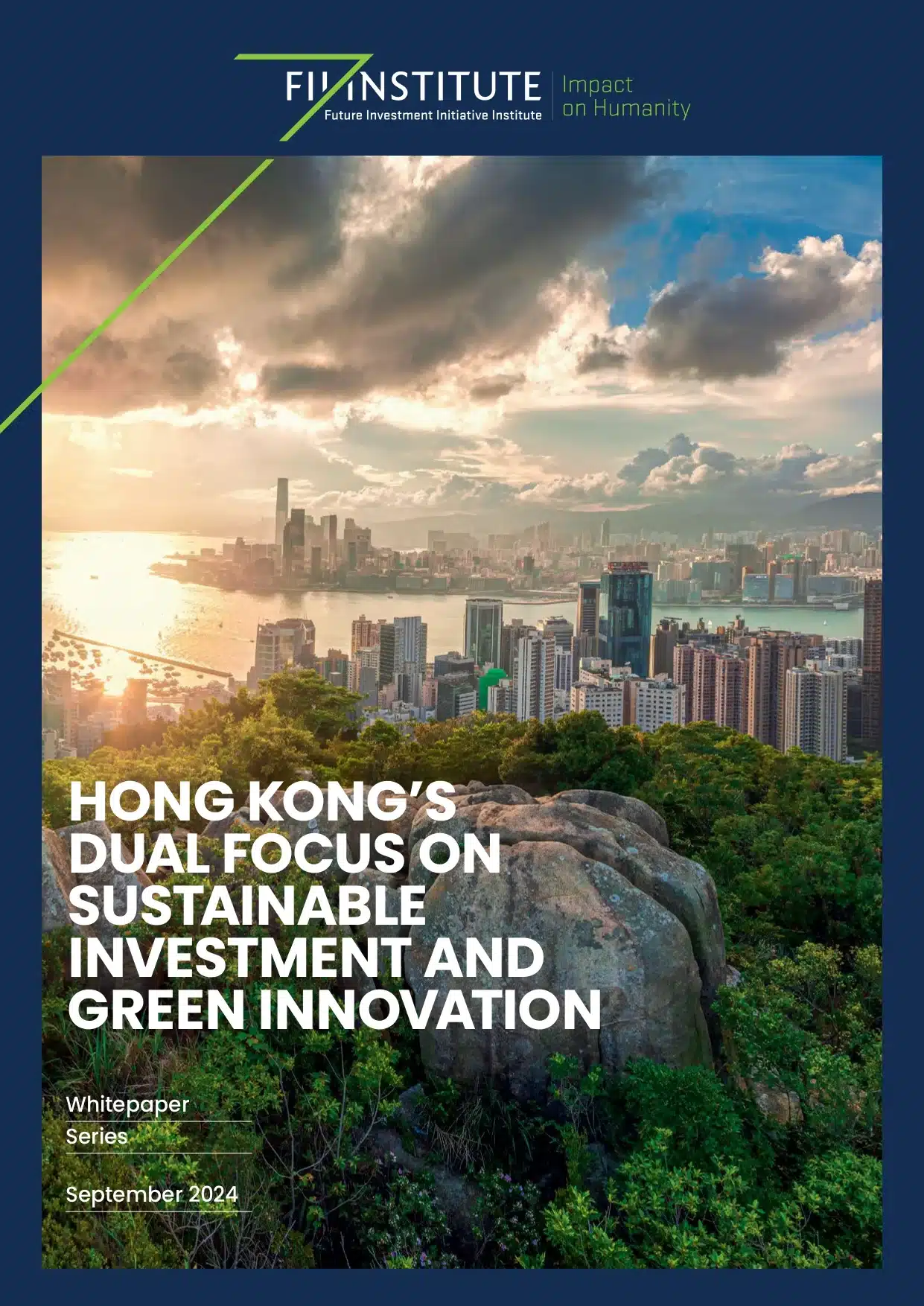
Explore our latest whitepaper, "Hong Kong’s Dual Focus on Sustainable Investment and Green Innovation," which highlights the city's robust efforts in enhancing its green finance ecosystem.
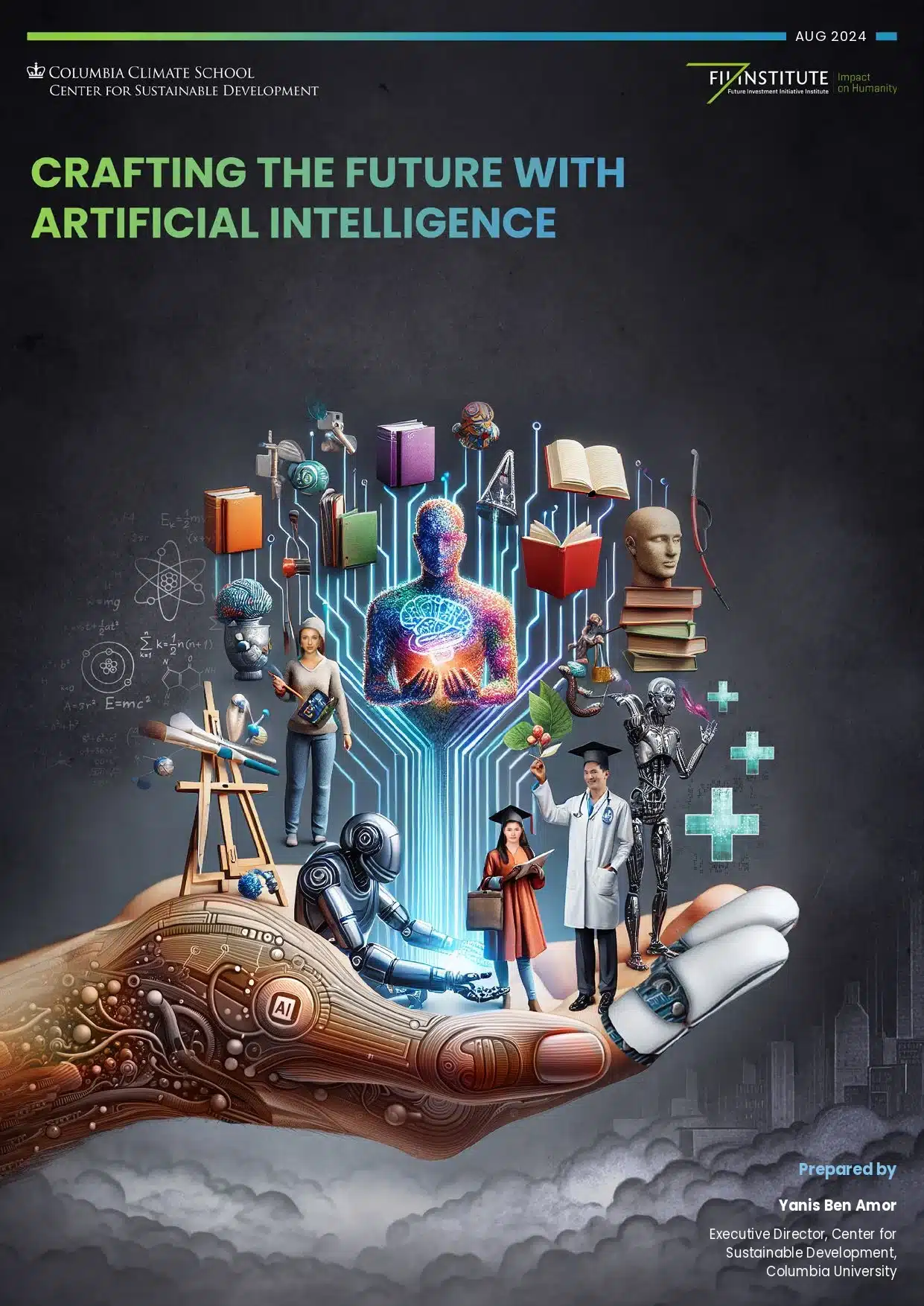
FII Institute launched the second series of publication exploring the profound implications of Artificial Intelligence (AI) in collaboration with Columbia Climate School Center for Sustainable Development on macroeconomics, healthcare, and workforce development.
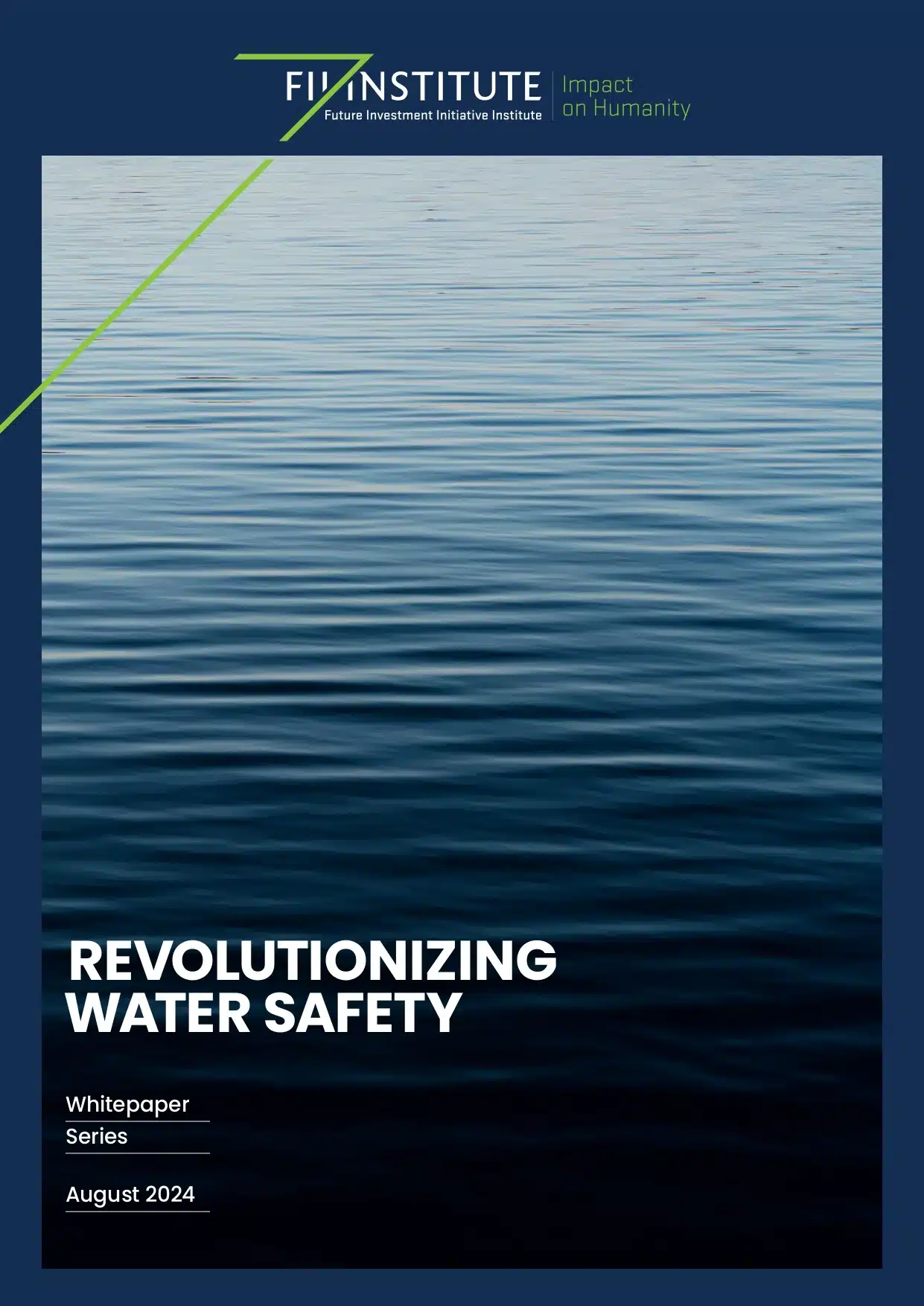
Discover the groundbreaking insights from our latest report, "Revolutionizing Water Safety," in partnership with Hydroquo+. This comprehensive analysis highlights the urgent need for innovative solutions to combat the global water crisis, focusing on the transformative potential of real-time monitoring technologies like the Autonomous Microbiological Alert Sensor (AMAS). Join us in exploring how these advancements can enhance water safety, protect public health, and ensure sustainable access to clean water for all.
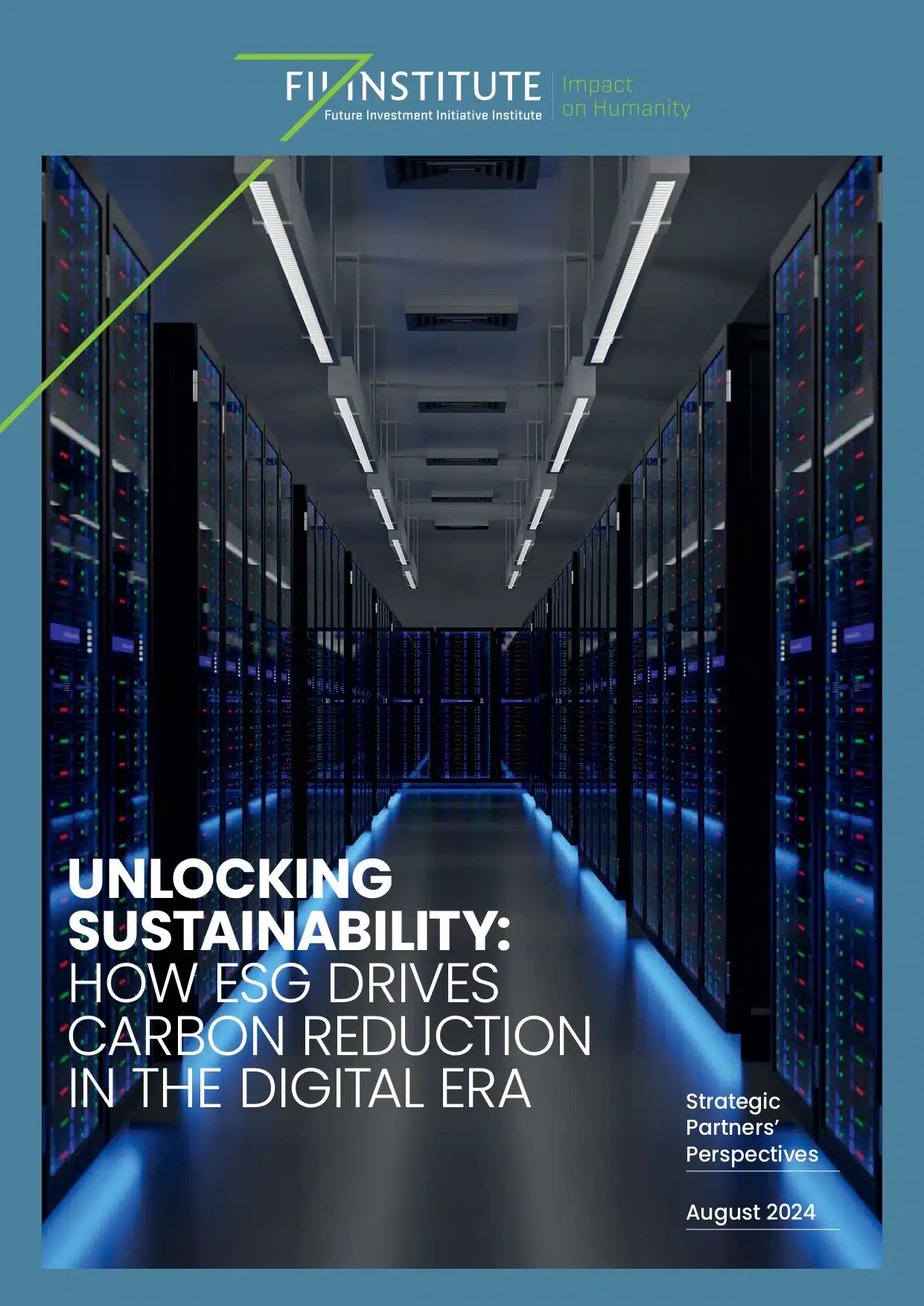
The FII Institute proudly presents its latest report in partnership with our strategic partner, THIQAH which delves into the critical intersection of digital transformation and environmental sustainability. This publication highlights the urgent need for businesses to integrate Environmental, Social, and Governance (ESG) principles into their strategies to combat the growing carbon footprint and e-waste crisis. By showcasing innovative solutions and promoting green technologies, the report aims to inspire collective action towards a sustainable future for humanity. Join us in exploring how we can harness digital advancements to create a brighter, greener world!
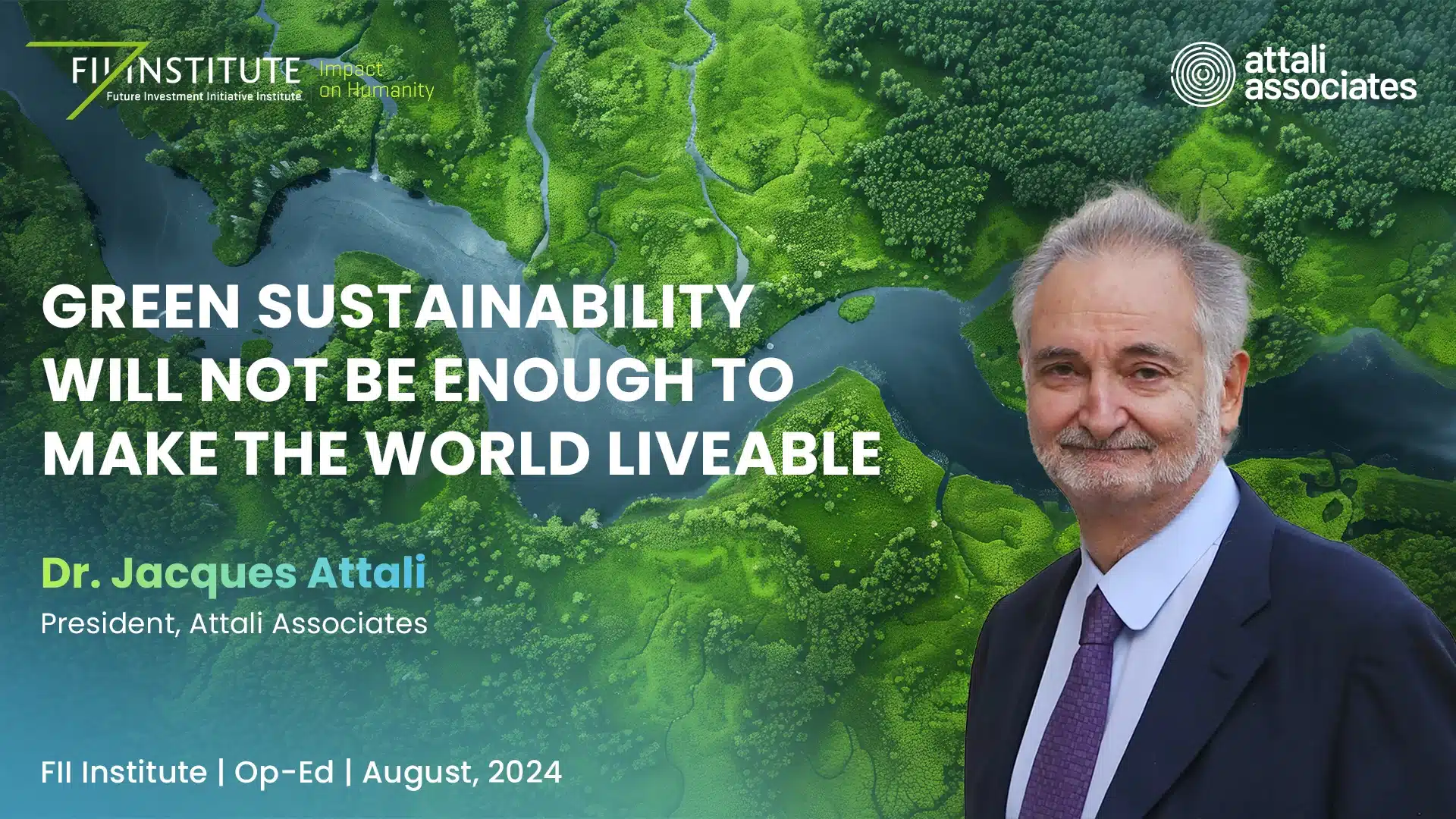
We must address the urgent reality of climate change and its dire consequences in 2050. If humanity does not achieve carbon neutrality, one-third of humanity will be living in too hot and inundated areas by then. Therefore, reaching carbon neutrality in 2050 is a goal and a necessity.
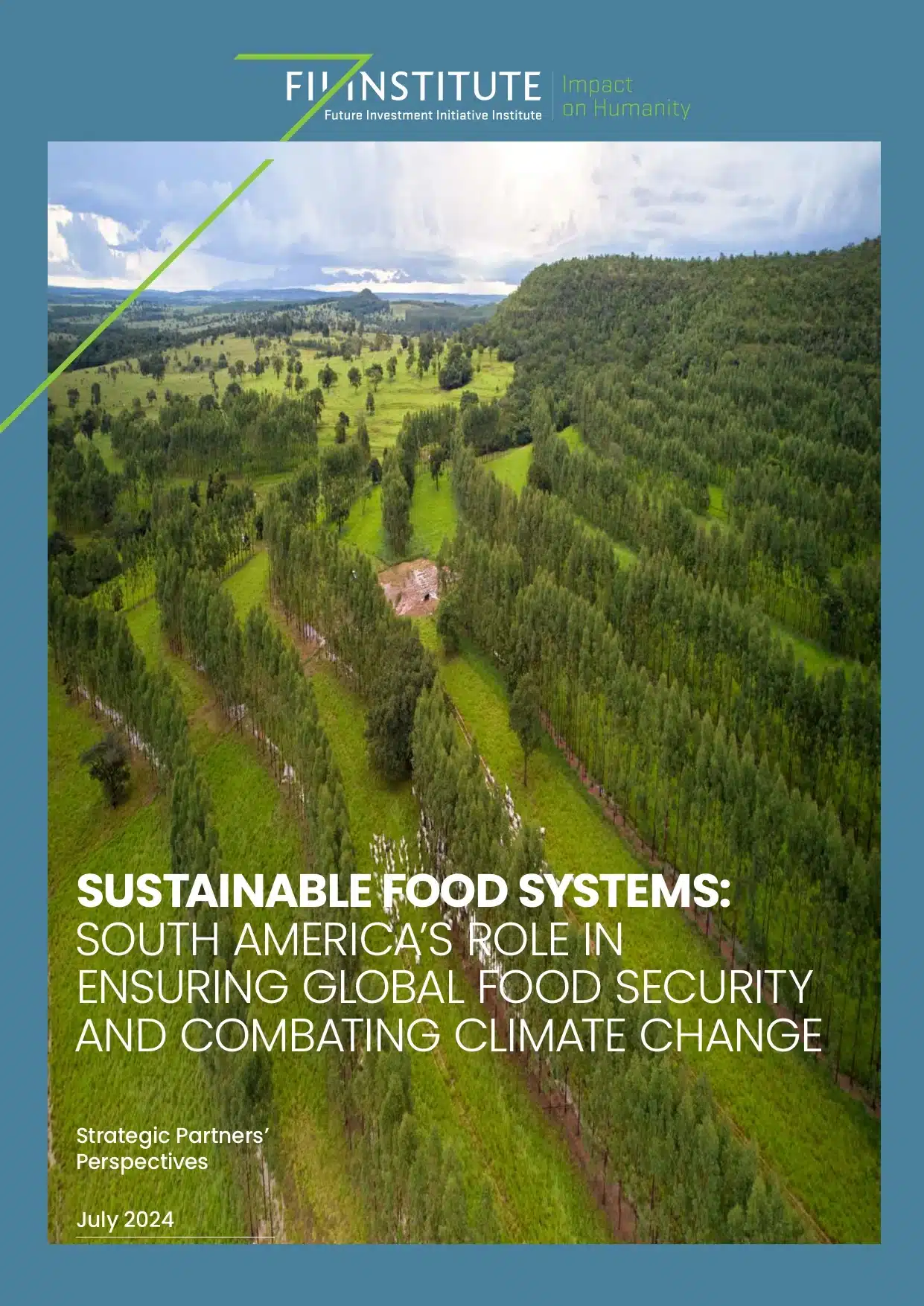
Immerse yourself and discover how this SP Perspectives' White paper report in collaboration with Minerva Foods can benefit you by gaining valuable insights into sustainable livestock production, carbon sequestration, and the potential of nature-based carbon credit markets.
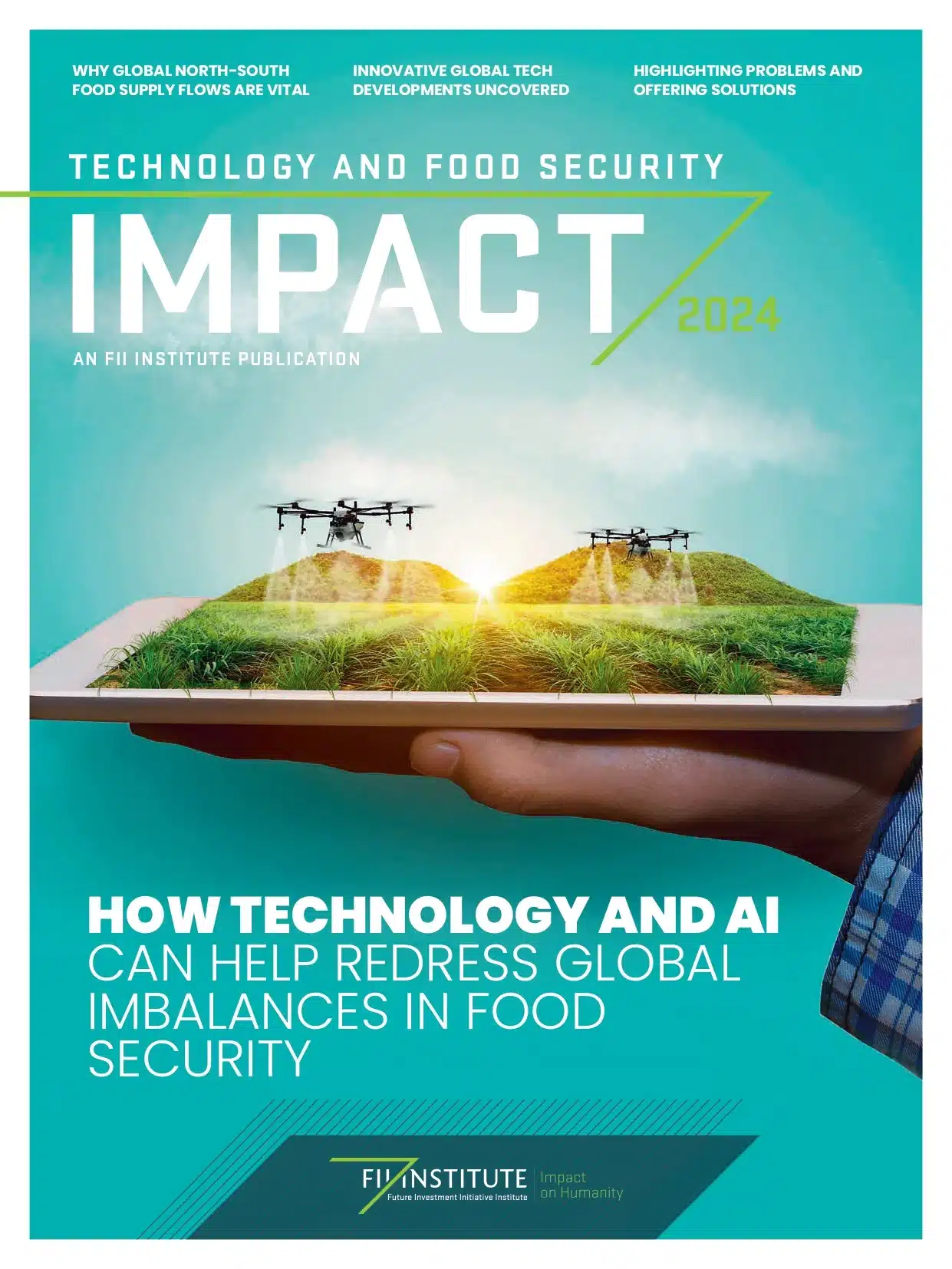
This comprehensive report delves into the transformative impact on tech-driven solutions and sustainable practices such as precision farming, AI analytics, and blockchain on agriculture in the face of climate change and population growth.
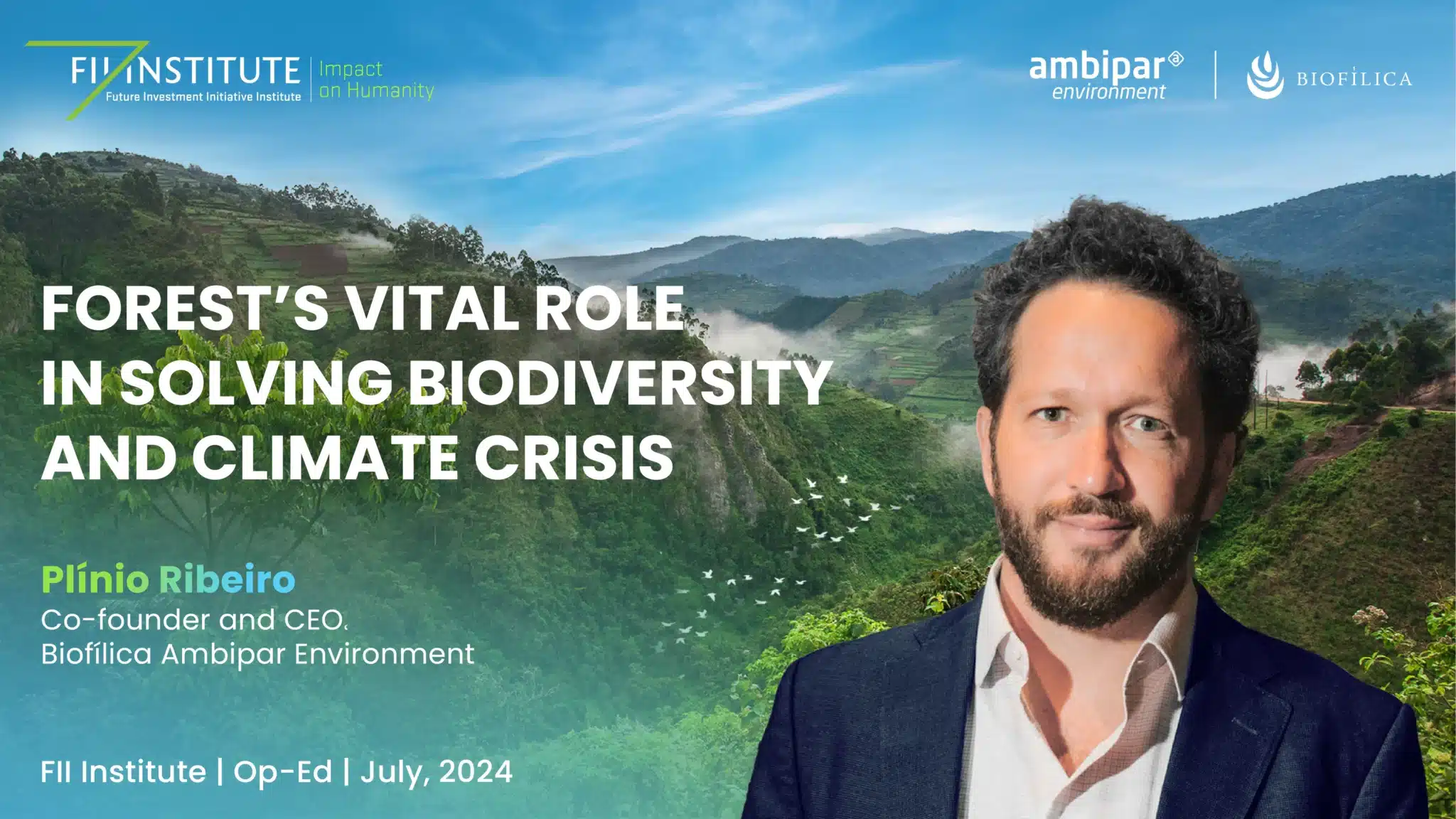
Find out critical insights from the recent op-ed launched in partnership with Plínio Ribeiro, highlighting the vital role of forests in addressing the biodiversity and climate crisis.
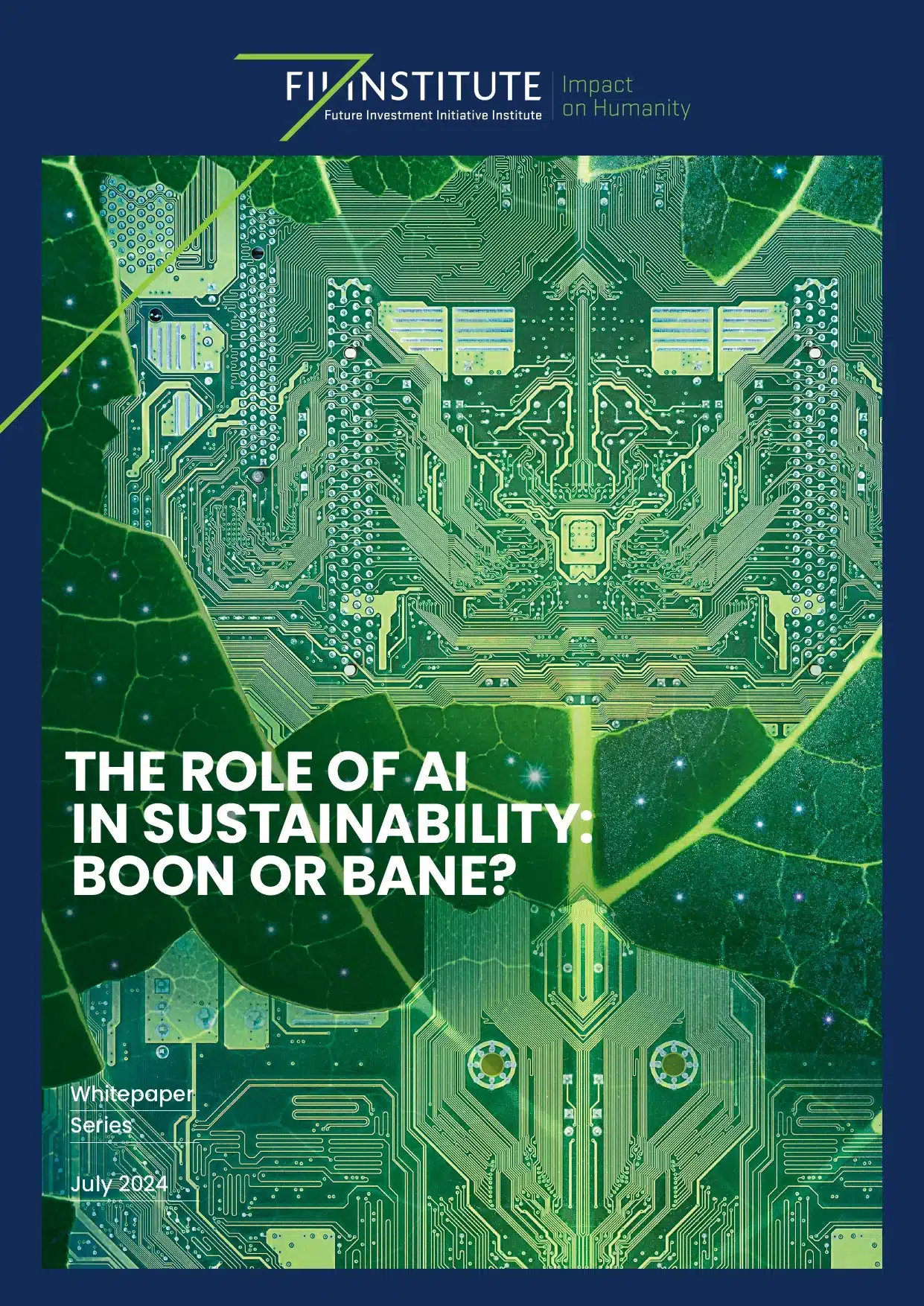
As we grapple with climate change and dwindling resources, can artificial intelligence truly be the game-changer we need for sustainability? The Future Investment Initiative (FII) Institute, in collaboration with Arthur D. Little, presents a groundbreaking white paper exploring the pivotal role of Artificial Intelligence (AI) in driving sustainability.
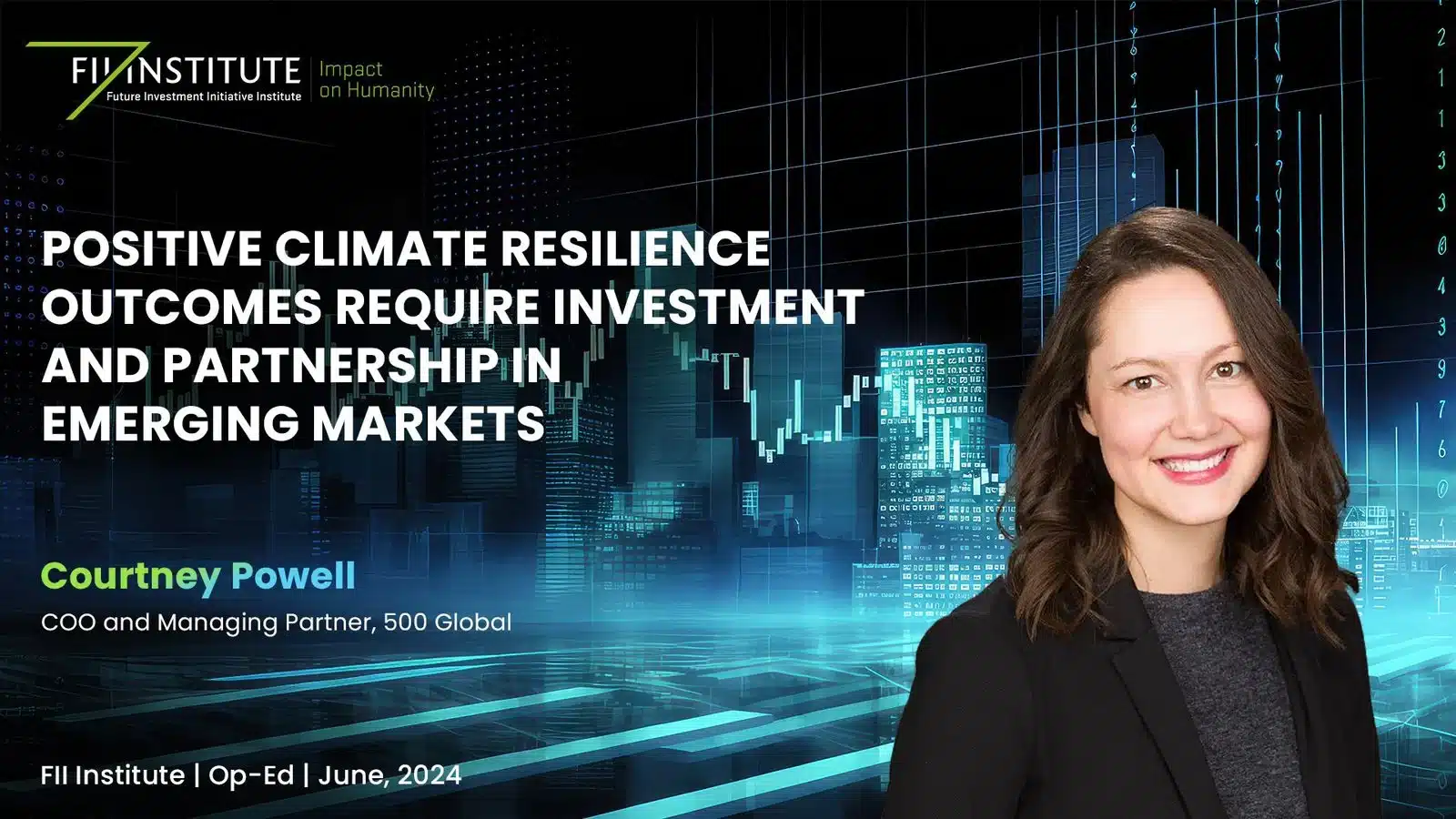
In her op-ed, Courtney Powell emphasizes the urgency of addressing climate challenges through innovation and collaboration. She highlights the critical role of venture capitalists in funding startups that can develop technologies to mitigate climate impacts, particularly in emerging markets.
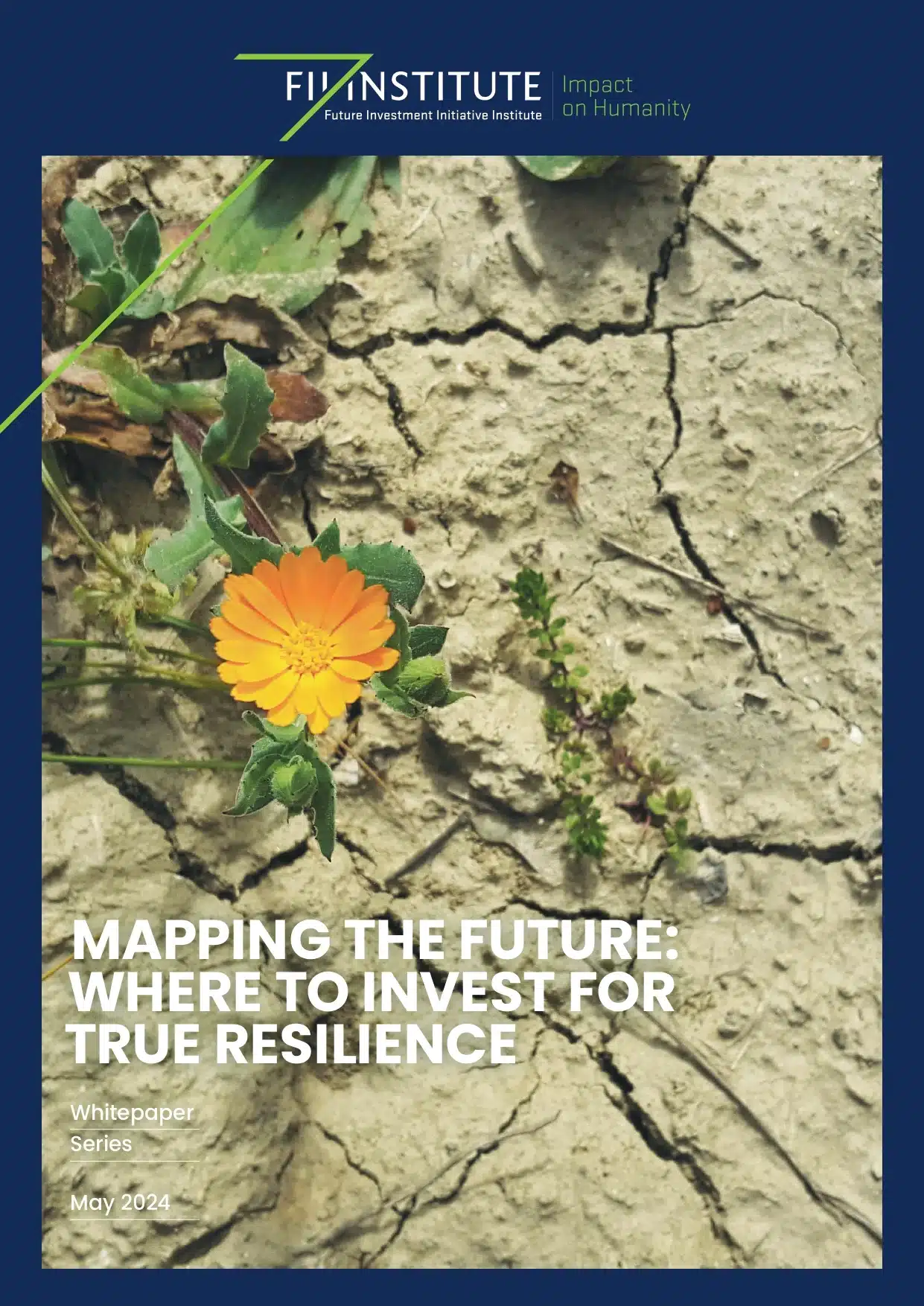
Have you ever wondered how geopolitics, demographics, technology, and climate are shaping the global economic landscape? Our latest whitepaper, "Mapping the Future: Where to Invest for True Resilience," delves into the dynamic forces of geopolitics, demographics, technology, and climate that are reshaping the global economic landscape.
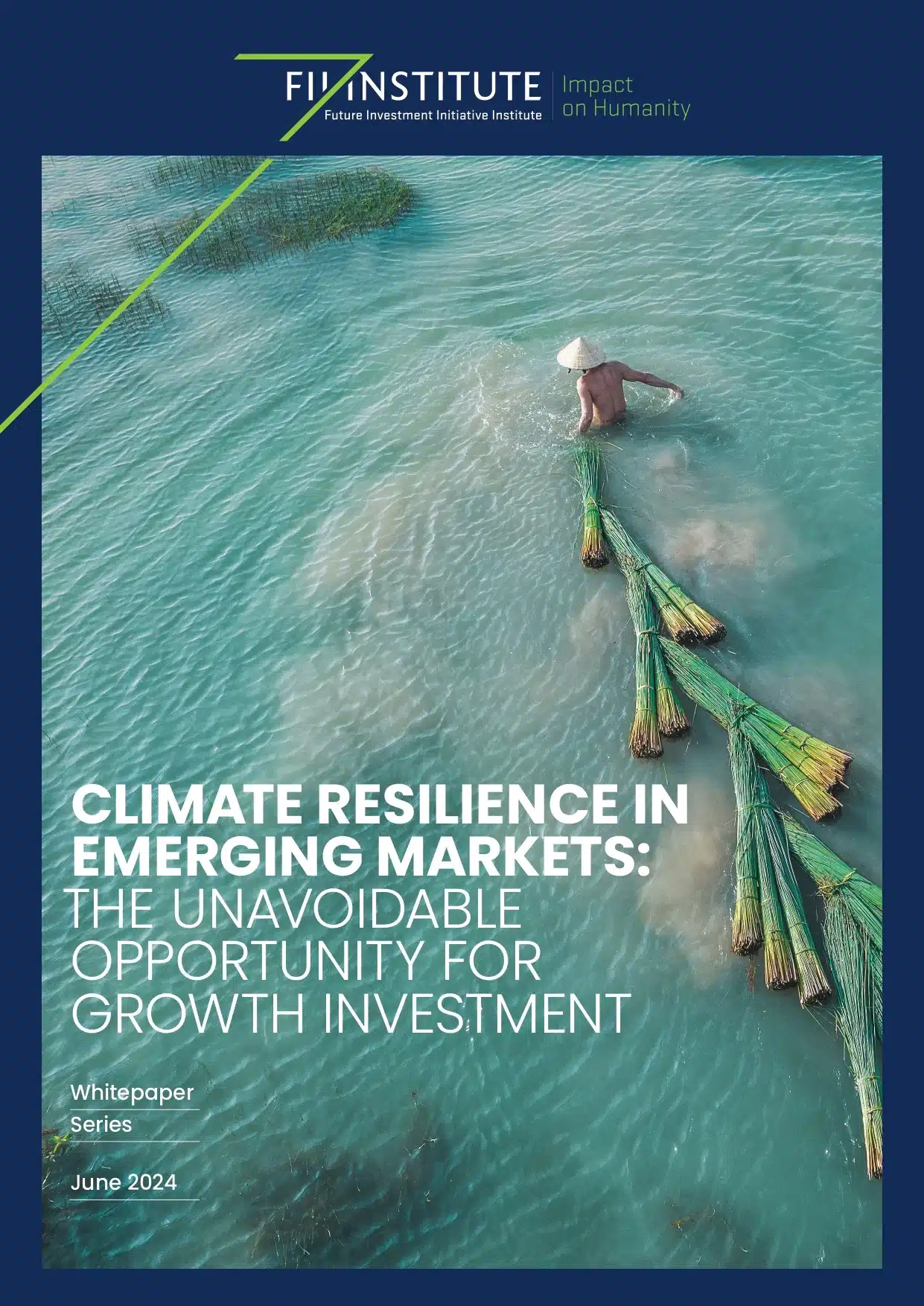
Join us on a journey to explore our latest launch of white paper report "CLIMATE RESILIENCE IN EMERGING MARKETS: THE UNAVOIDABLE OPPORTUNITY FOR GROWTH INVESTMENT" that delves into how climate change is reshaping the investment landscape and driving growth in technologies that build resilience and adaptation.

In our Impact Report “How AI Can Innovate and Improve ESG & Sustainable Finance Performance," we join forces with subject matter experts from our strategic partners at HSBC and Franklin Templeton and delve deeper into the complexities of sustainable finance and explore innovative solutions to navigate this intricate landscape.
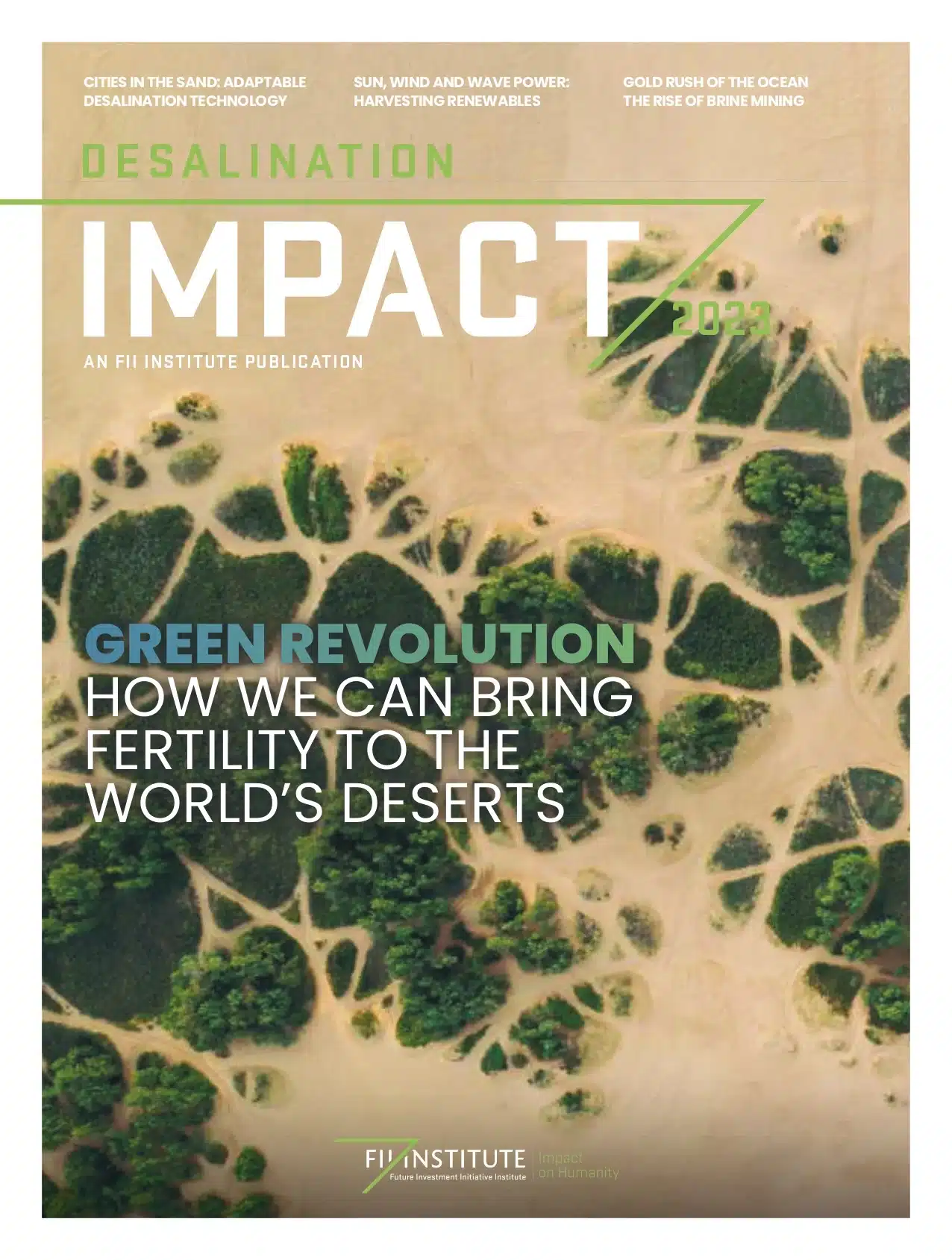
Check out our Desalination Impact Report to explore how desalination stands out as a game-changing technology that has proven valuable in making an Impact on Humanity.
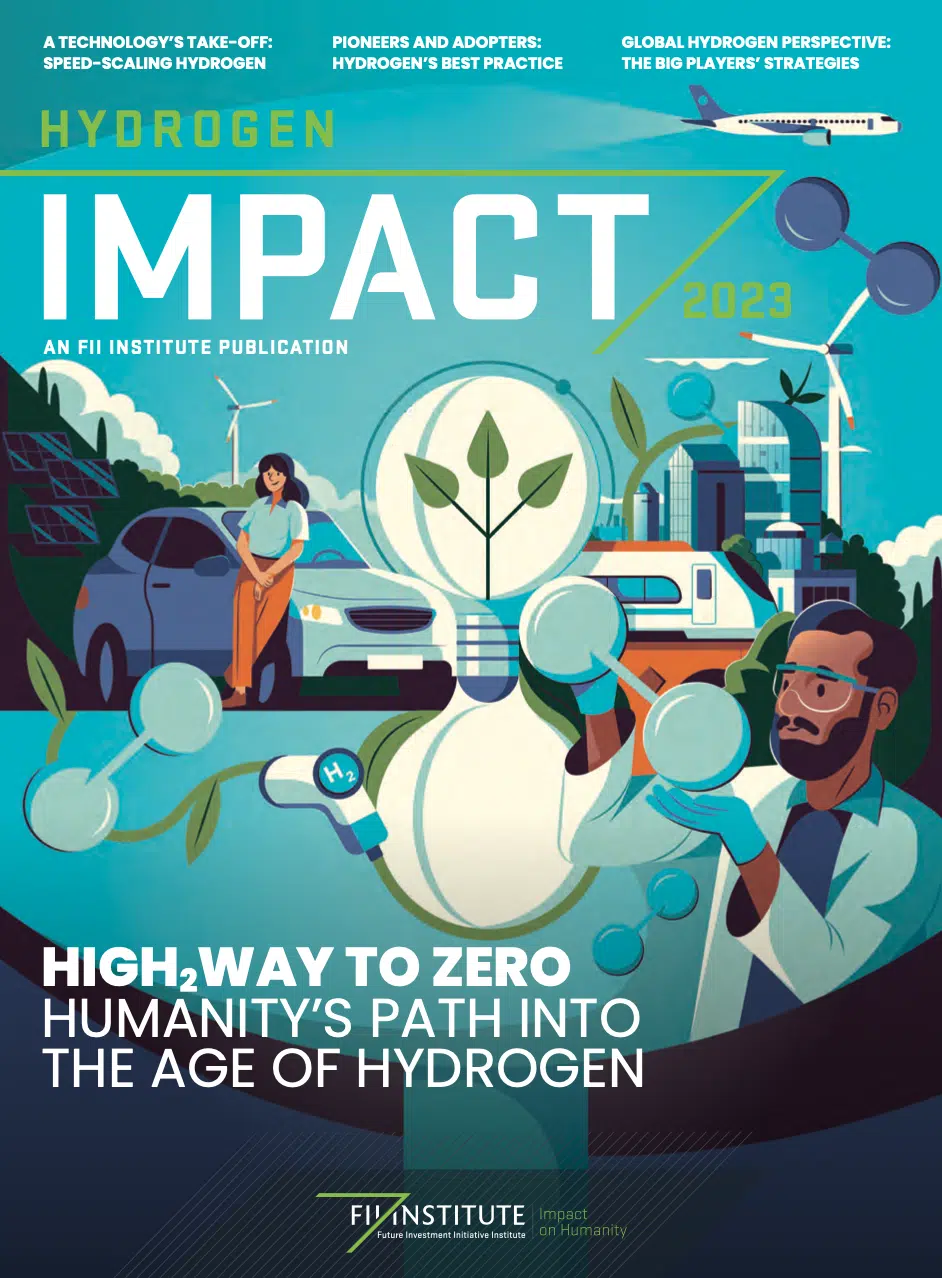
Check out the Hydrogen Impact Report to learn how hydrogen is being catalyzed around the world and plans for how it will power our future.
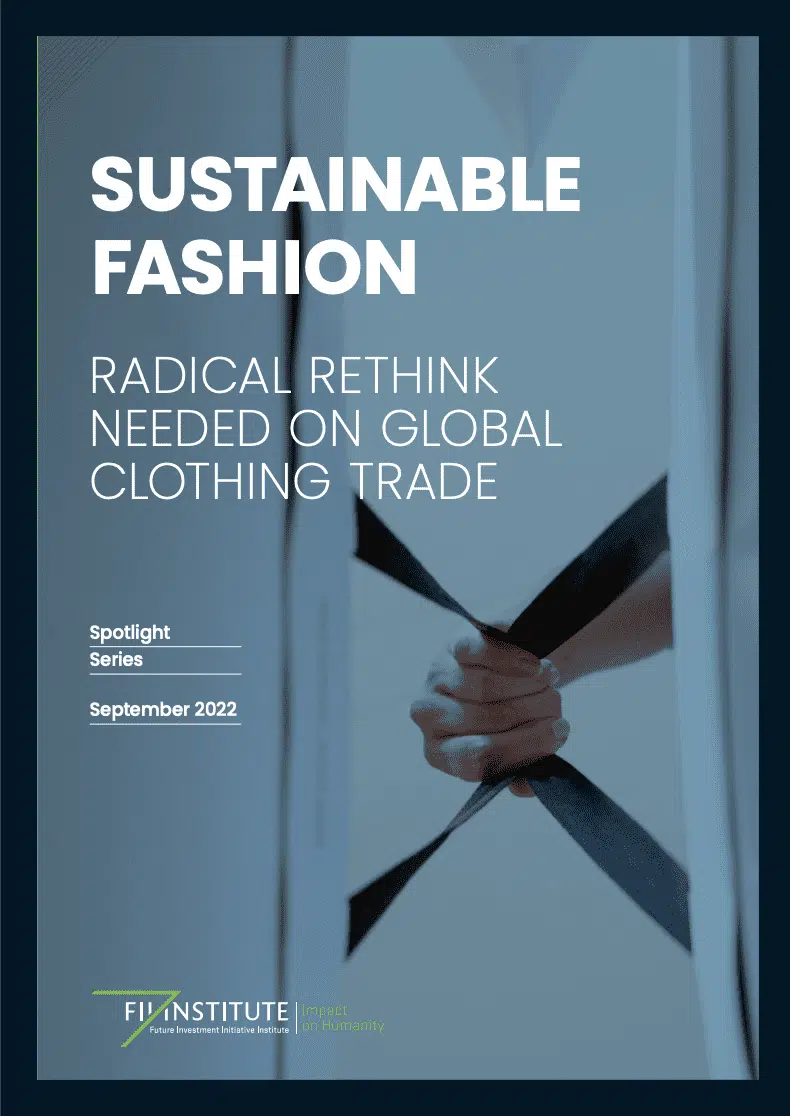
Today’s throwaway clothing or “fast fashion” has negative environmental impacts at every stage of its life cycle. Current systems are not sustainable. We need to change what our clothes are made from, where and how they are produced, and how we dispose of them.
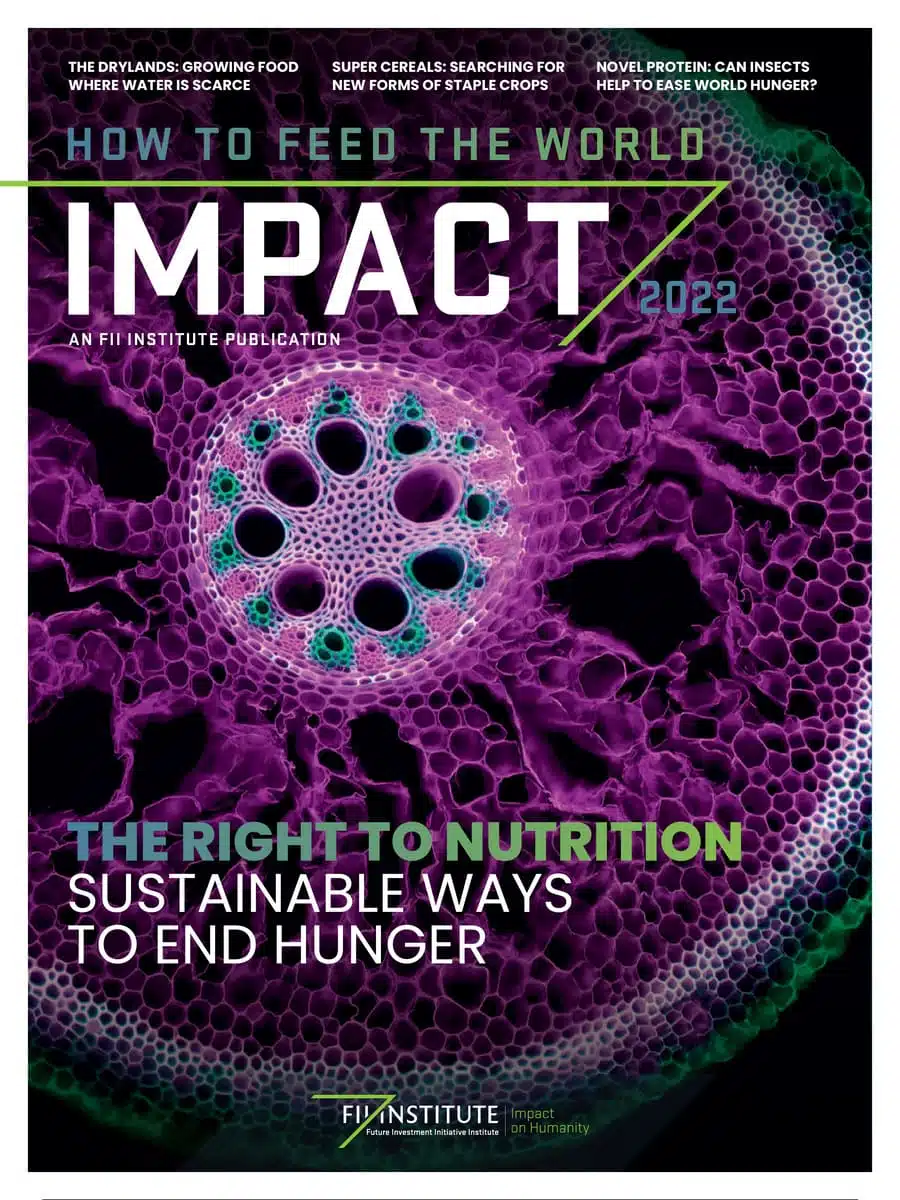
Progress made to reduce hunger in recent decades is now going into reverse. Only a concerted effort on many fronts will restore productivity to degraded soil and produce crops that can survive in the hot, dry conditions that are becoming common.
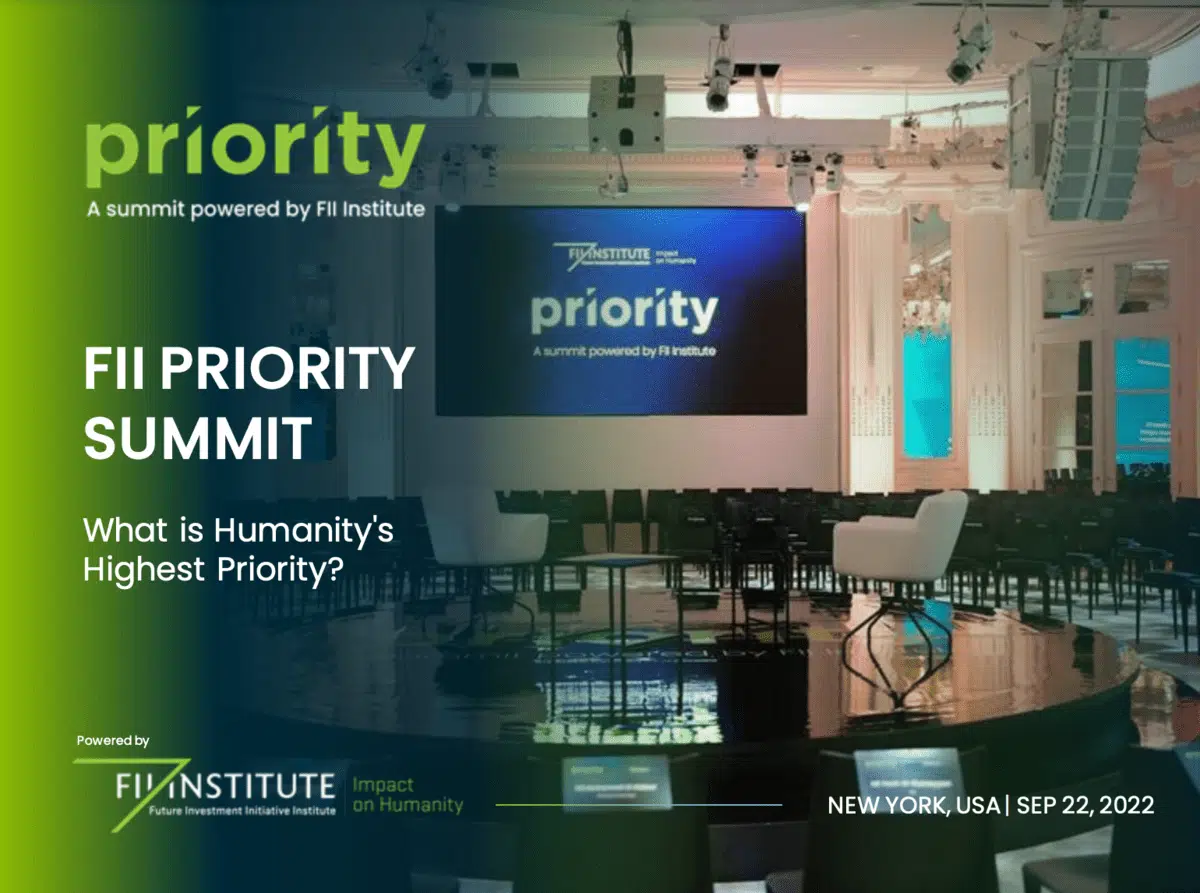
A Summit to Define Humanity’s Highest Priority Enlightenment has often followed humanity’s darkest hours. In a time of extraordinary social and economic transformations and shifting geopolitical alliances. The Future Investment Initiative (FII) Institute, in line with its mission to have a positive impact on humanity, has hosted a capstone summit to identify and explore the […]
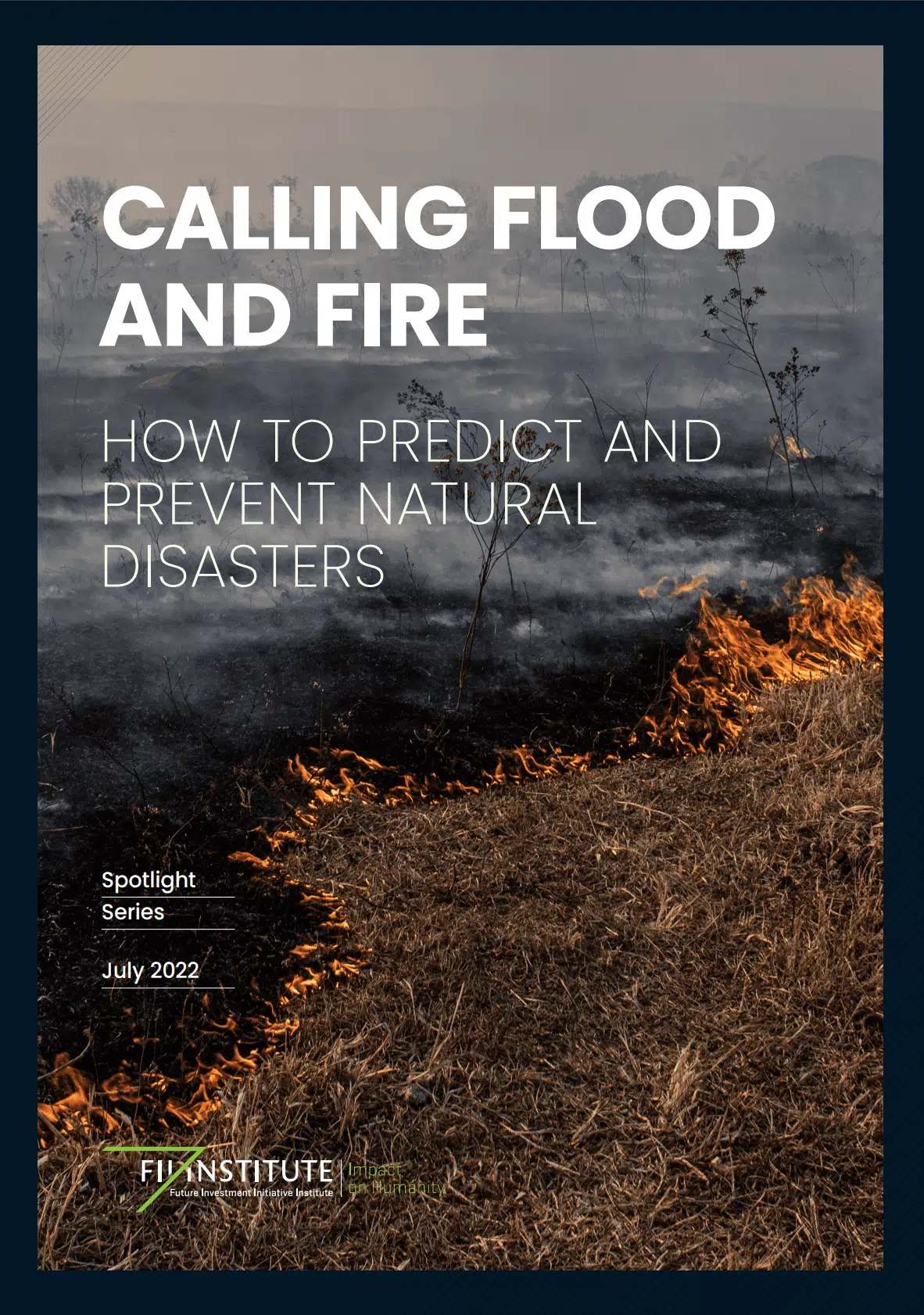
HOW TO PREDICT AND PREVENT NATURAL DISASTERS There is a critical need for better understanding of the behavior of wildfires and the causes of floods – to prevent, if not the disaster itself, at least the loss of lives. To get there, we need a combination of data and science-based monitoring systems with indigenous knowledge, as well as stronger regional and international cooperation.
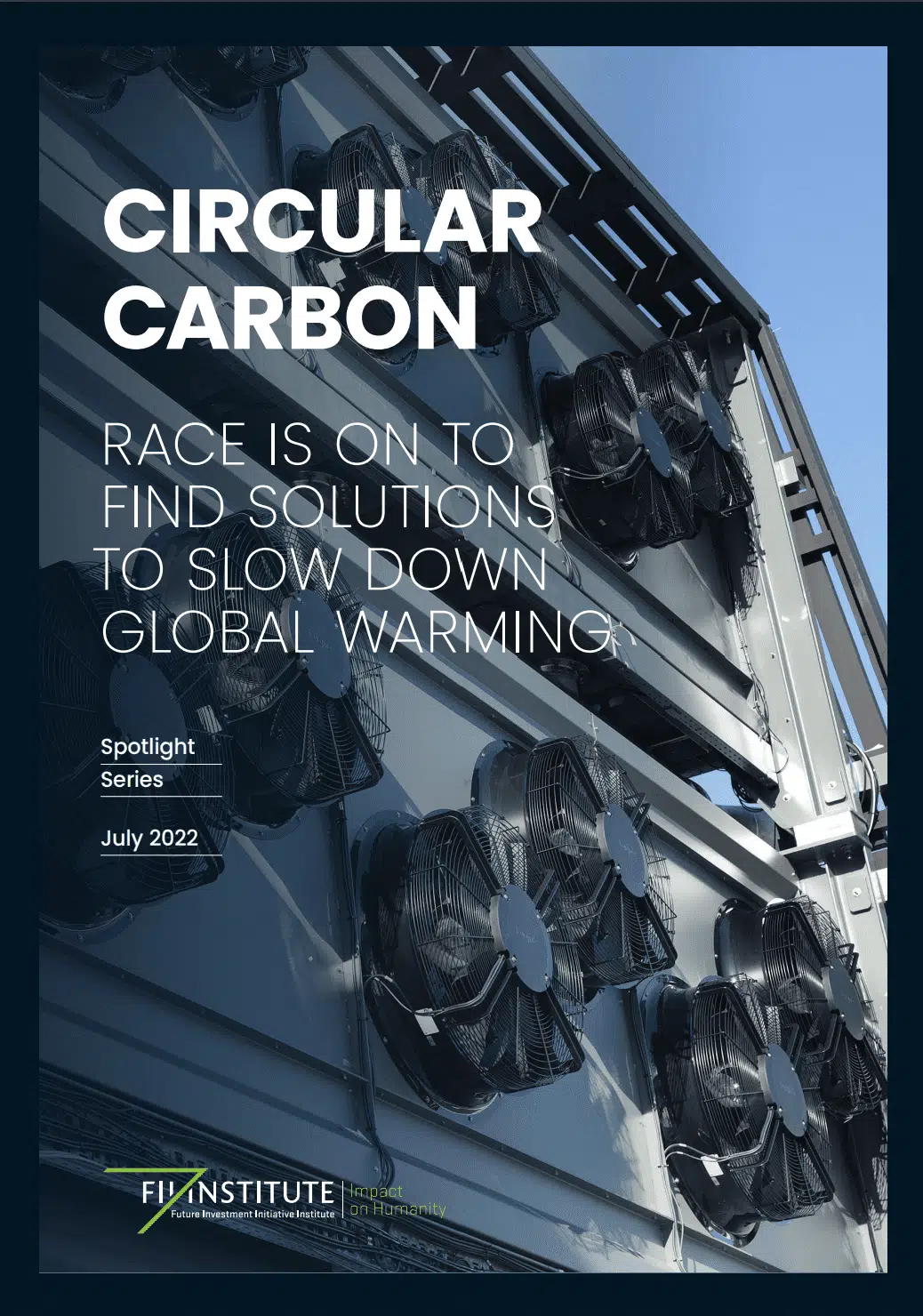
Race is on to find solutions to slow down global warming! TO SLOW DOWN GLOBAL WARMING WE NEED TO REMOVE CARBON FROM THE AIR Numerous methods have been identified, both natural and technological, for extracting carbon dioxide from the atmosphere. Experts are urgently investigating their viability, relative costs and potential trade-offs, synergies and downsides.
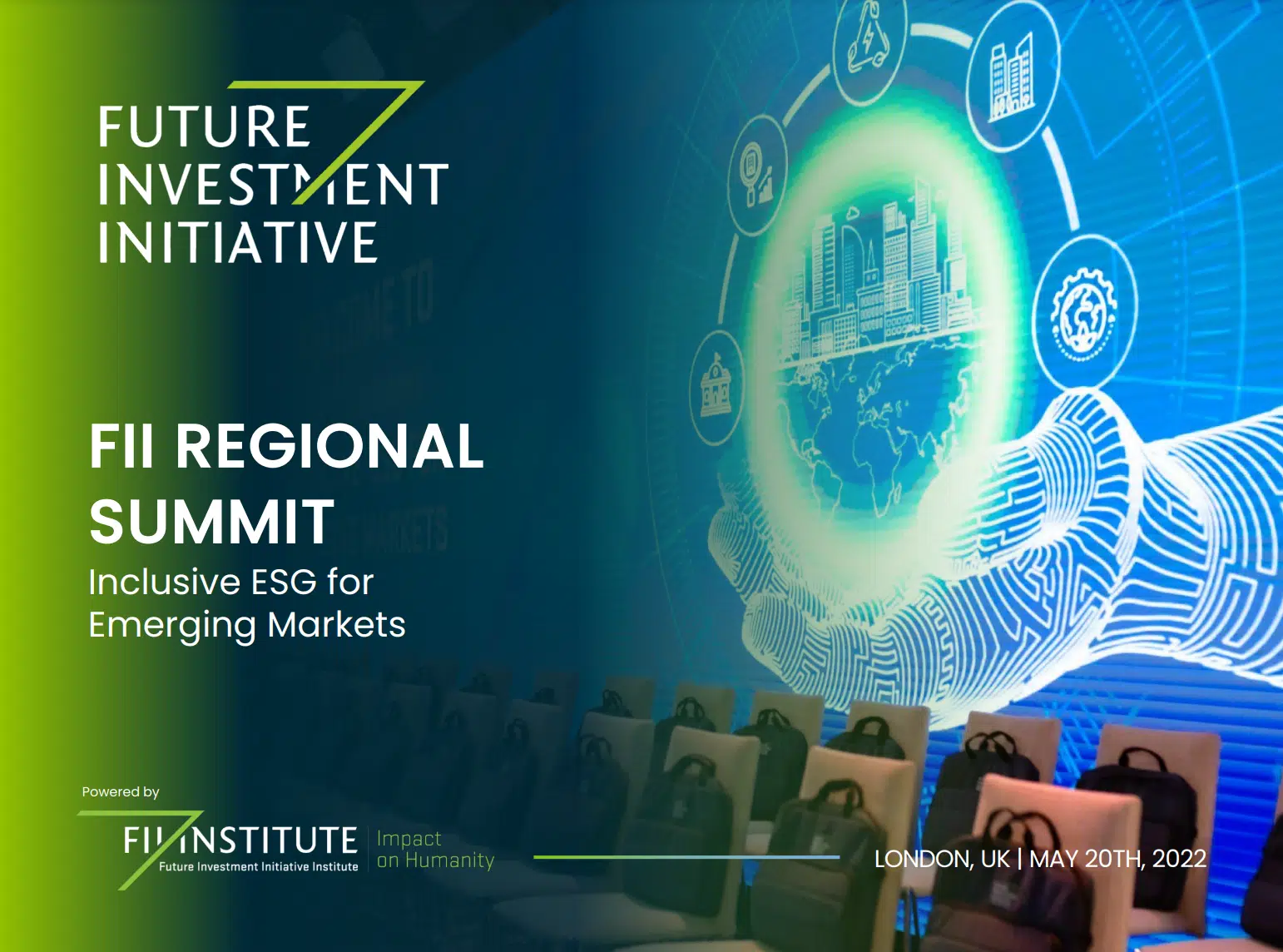
WELCOME REMARKS FROM THE CEO OF FII INSTITUTE If the planet has huge problems – its temperature has warmed up to ice-cap-melting levels and its accelerating loss of animal and plant species has been described as a sixth mass extinction – it also potentially has significant resources to devote to these problems. To stave off […]
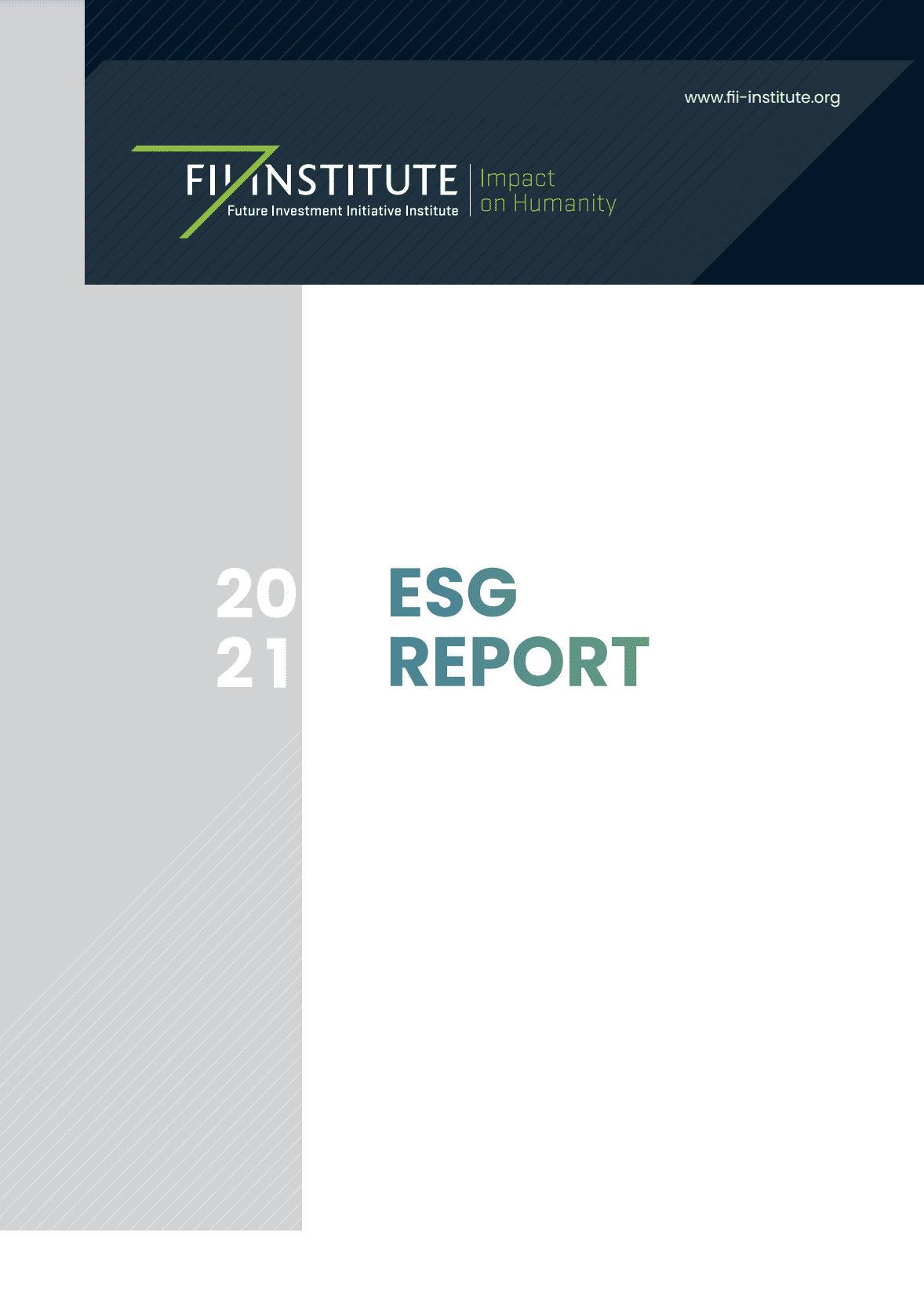
As we continue to battle a global pandemic, we need to rethink our approach to sustainability. For despite the progress achieved since the 17 Sustainable Development Goals (SDGs) were adopted, and the growing alignment of Environmental, Social, and Governance (ESG) principles with the SDGs, achieving just and inclusive sustainable development remains one of the major global challenges of our time.
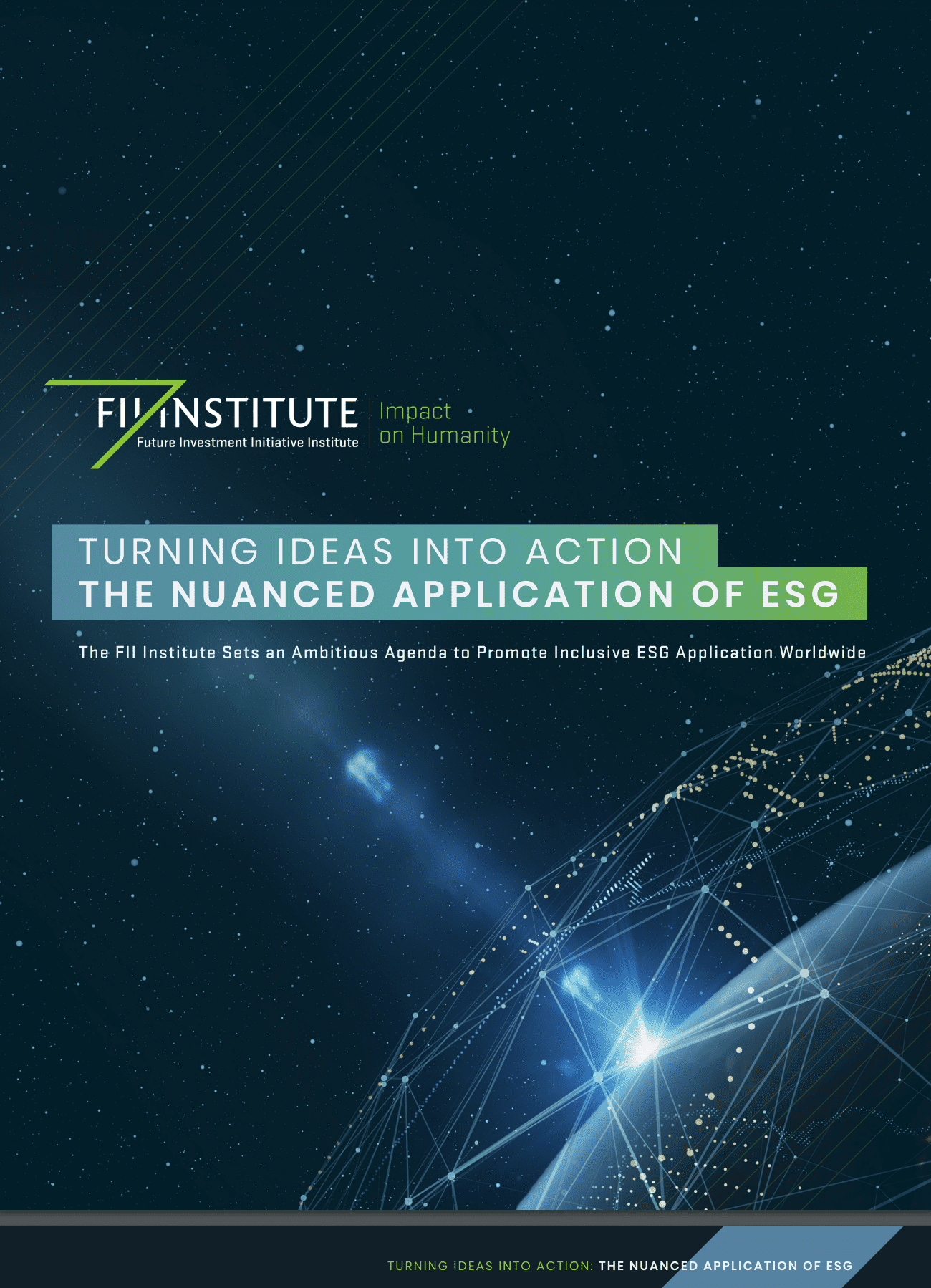
Nuanced ESG application was a dominant theme at the FII Institute Series inaugural ESG virtual event help on the 15th of April 2021. Speakers gathered virtually from around the world agreed that the tipping point for ESG in the global marketplace has passed. Today’s challenge is how ESG standards can be refined, standardized, and deployed across global markets to achieve maximum pact for society and the environment.
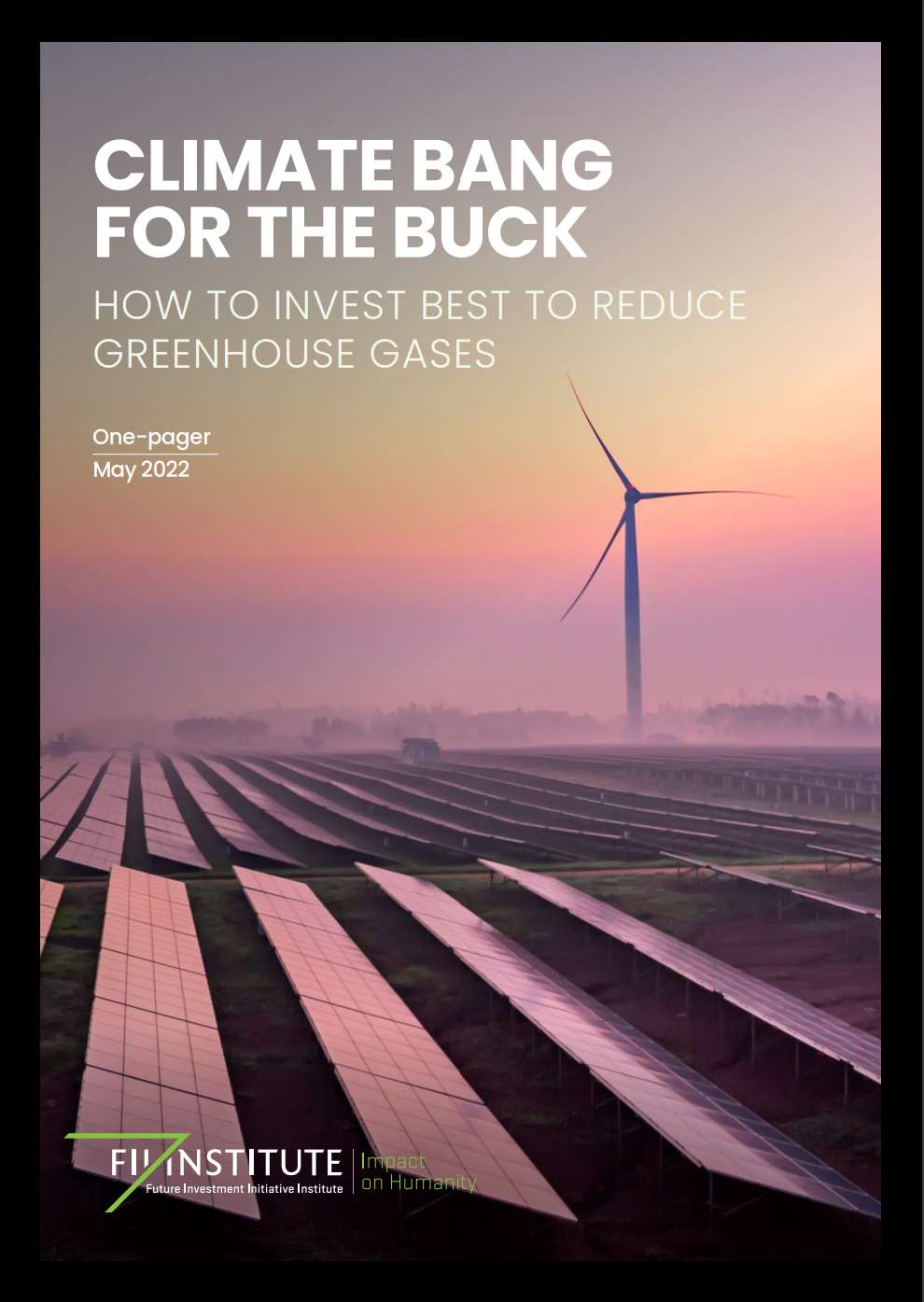
Resources are scarce, and the challenge is huge: To fight climate change as efficiently as possible, we should globally invest in the mitigation technologies that can reduce greenhouse gases most efficiently. But what are they?
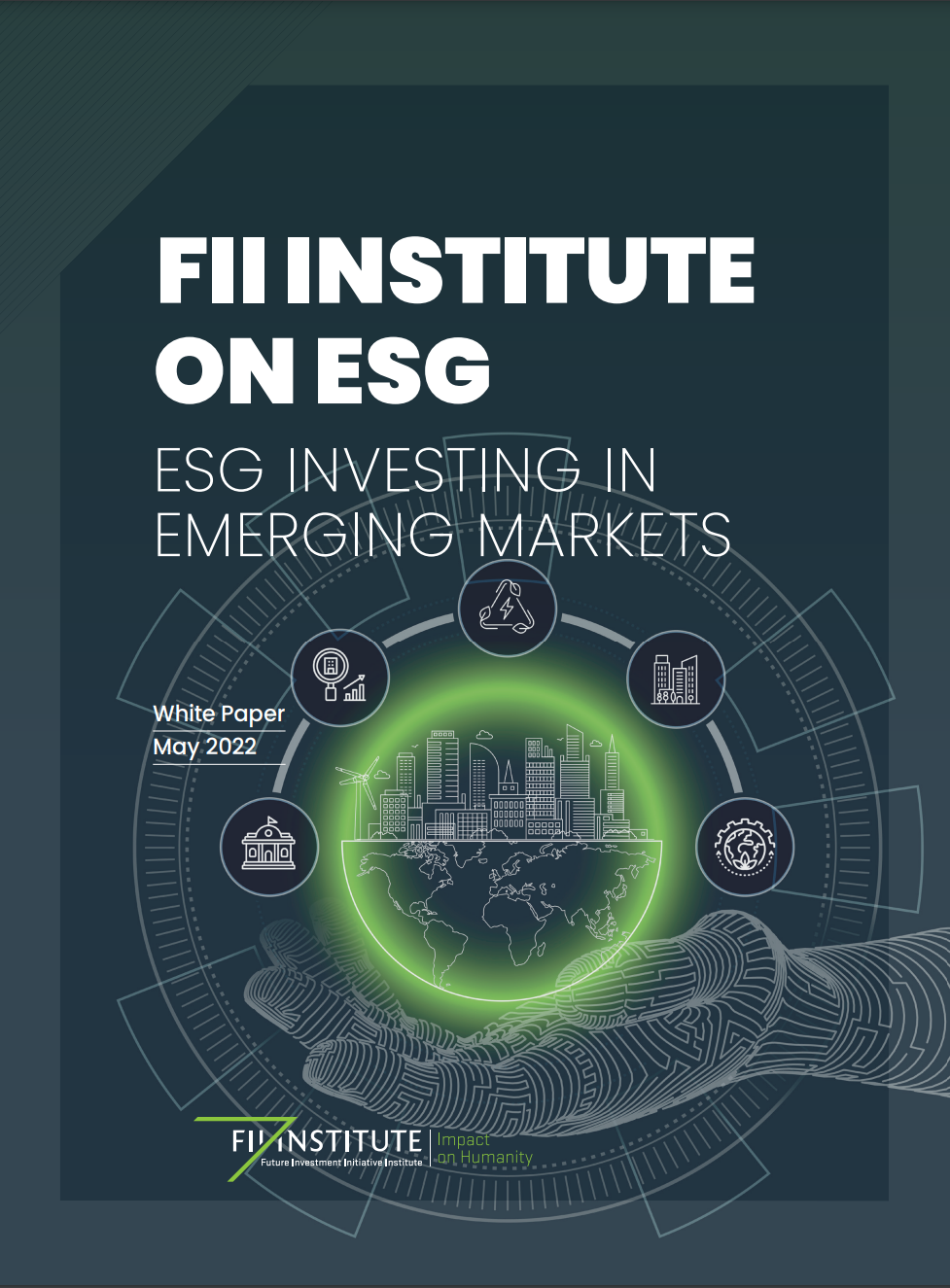
An unprecedented series of recent supply chain disruptions have highlighted the need for alternatives to complex global systems. Fast and versatile, micro-factories the size of shipping containers can make supply chains more resilient and value creation more decentralized – with significant social and environmental benefits.
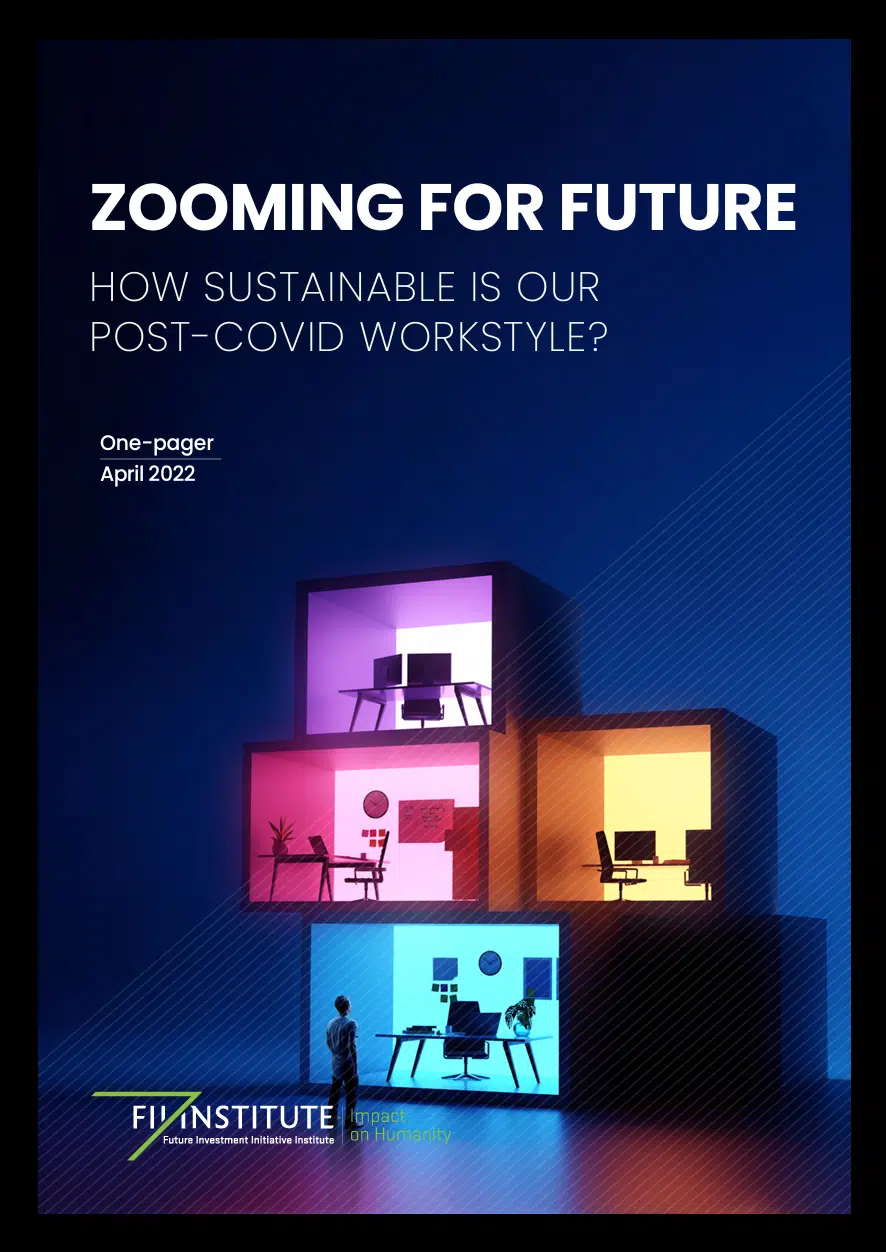
Home offices are far more sustainable than office-offices, we were told during the pandemic. But how much resources does working from home really save? And how sustainable will our post-COVID office-mix be?
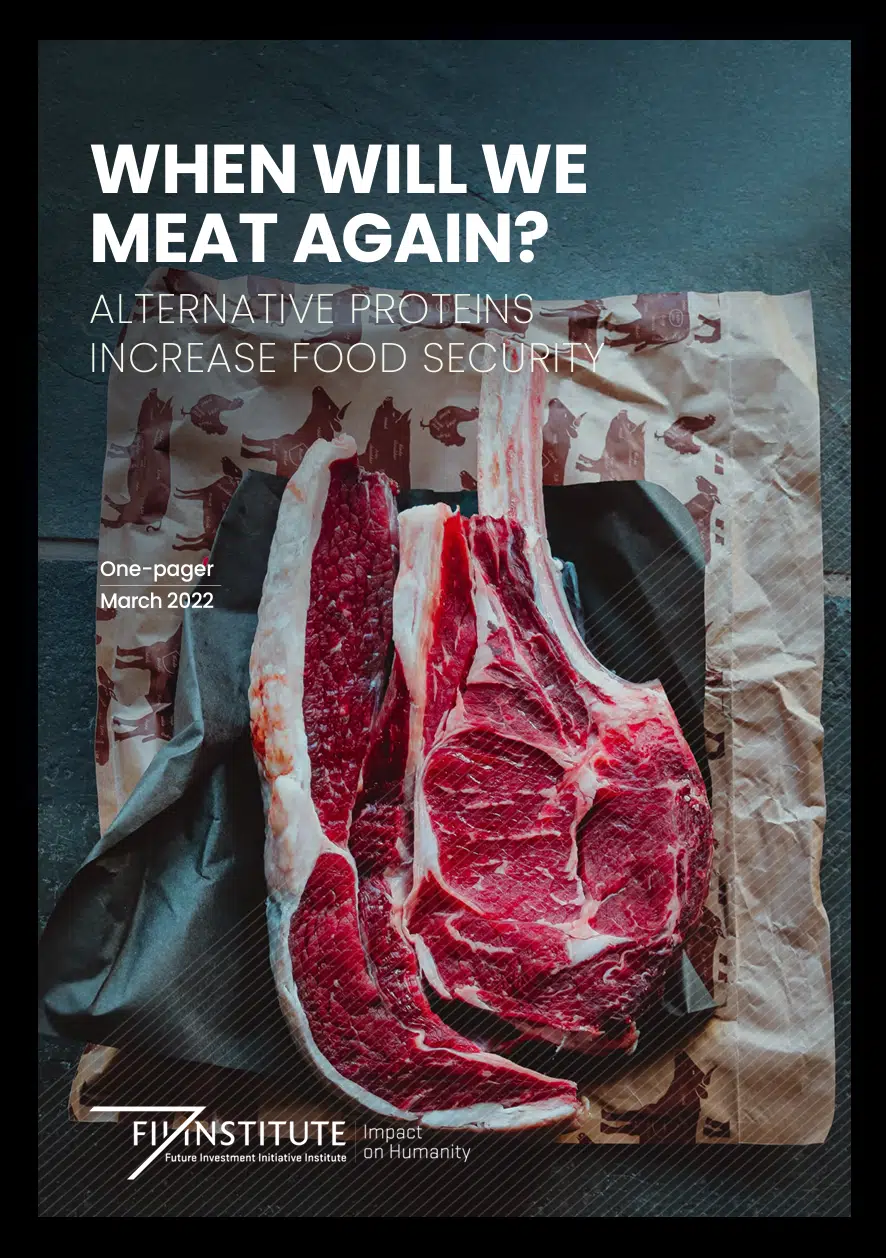
With skyrocketing food prices, the livelihood of billions of people is at risk. Plant-based alternatives to meat and milk can increase food security by decreasing livestock feed. The time is ripe for massive upscaling of meat and milk alternatives – and an equally massive down-scaling of prices.
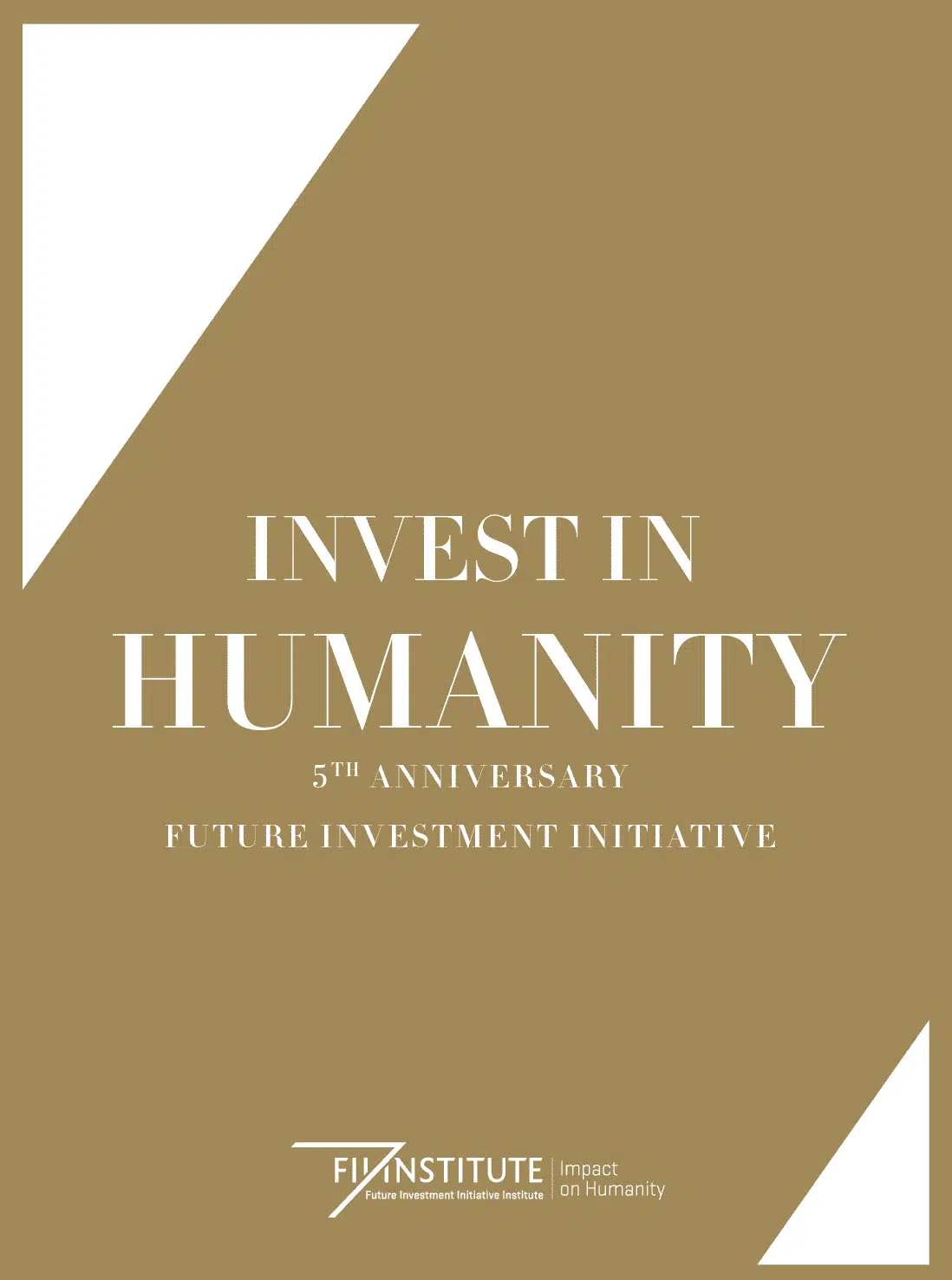
WHAT IS HUMANITY? Humanity bears two distinct yet complementary meanings: the adjectives “human” and “humane” reveal the complexity of a notion that is both scientific and spiritual.
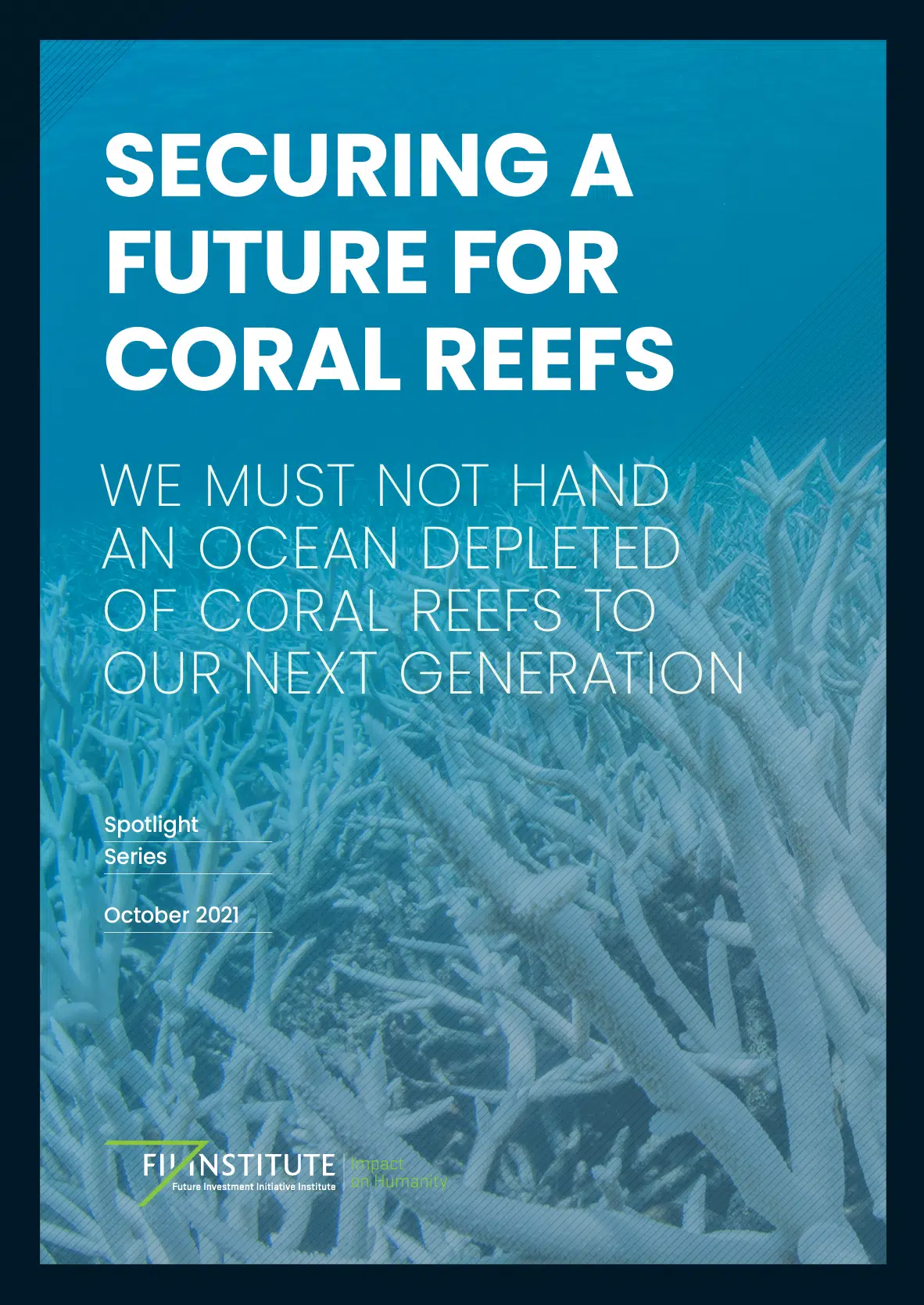
ABOUT TWO-THIRDS OF THE GLOBAL extent of tropical coral reefs has al- ready been lost – 14 percent of that in the last decade alone, largely as a result of cli- mate change. Even if we reach the most ambitious goal of the Paris Agreement, 75–90 percent of those remaining are projected to disappear by 2035. Securing a future for coral reefs requires an all-hands-on-deck effort. We must mobilize scientists, technologists, innovators, policymakers and philanthropists. We need to develop and deploy at scale the next generation technologies and science that will enable us to conserve and restore coral reefs.
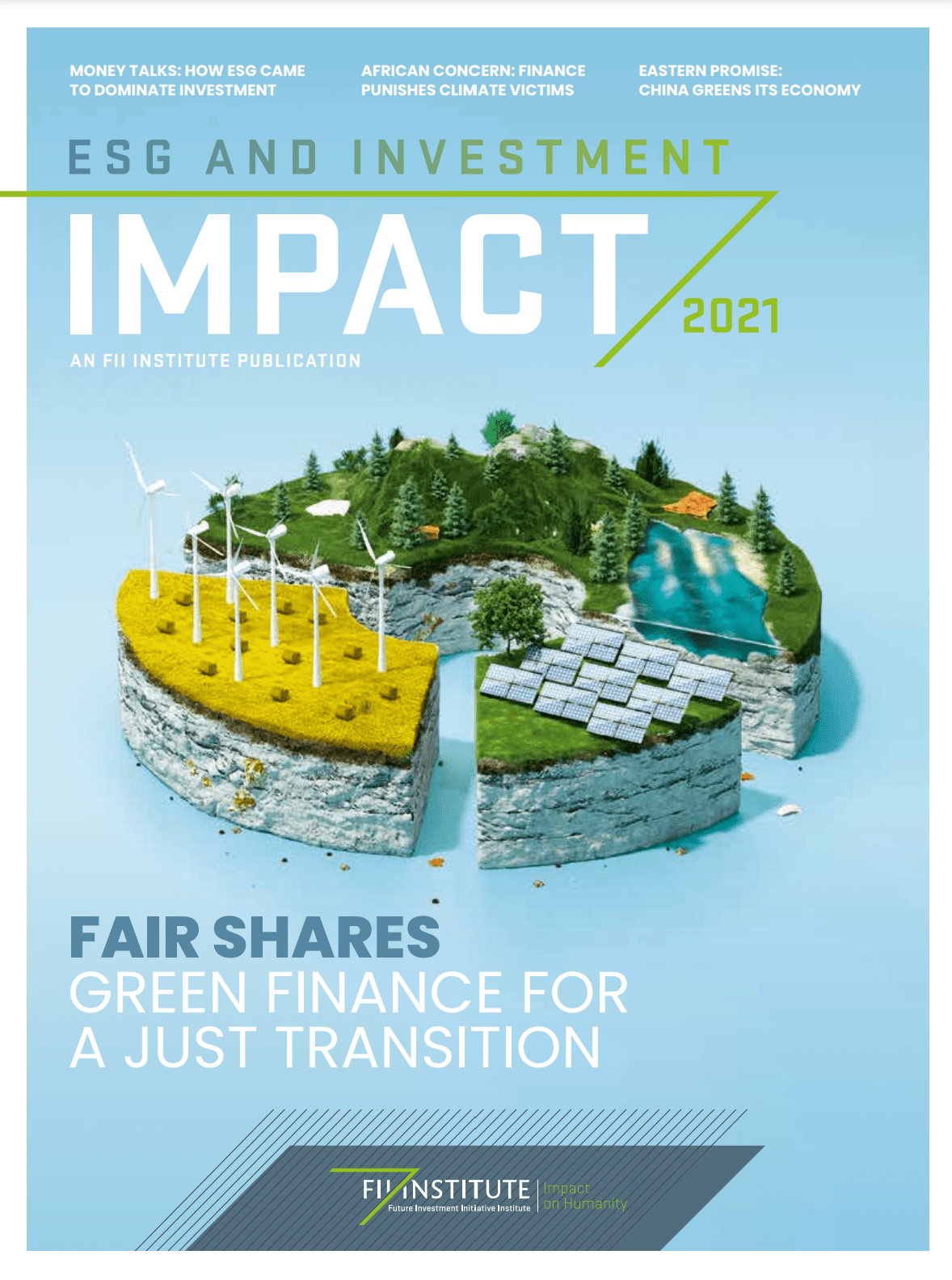
FII INSTITUTE publishes its fourth impact report as the world slowly begins to settle on its “new normal,” the boundaries of which are still being defined. The pandemic has caused tremendous loss and suffering but has also focused attention on the need for concerted action to pre-event and respond to future health and environmental crises.
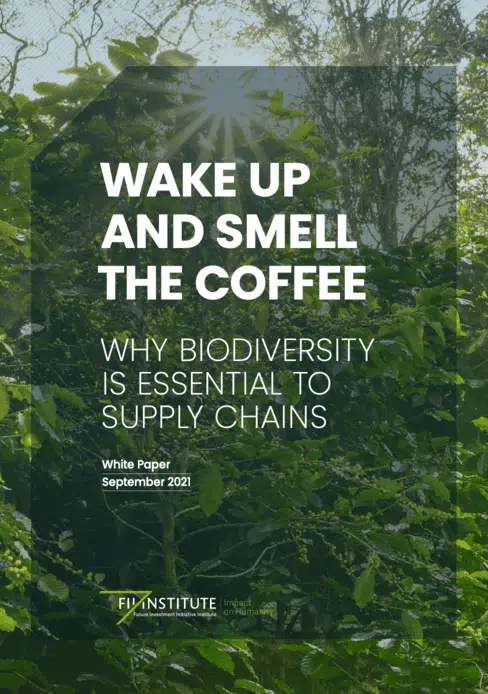
WHY BIODIVERSITY IS ESSENTIAL TO SUPPLY CHAINS ECOSYSTEMS AND SPECIES IN JEOPARDY Deforestation is the greatest threat to biodiversity worldwide and the rate of species extinction is accelerating. But changes to our diet can help to save the planet.
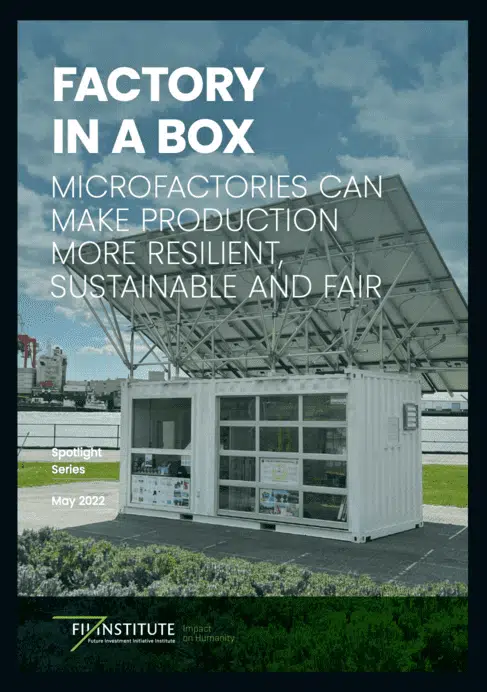
An unprecedented series of recent supply chain disruptions has highlighted the need for alternatives to complex global systems. Fast and versatile, microfactories the size of shipping containers can make supply chains more resilient and value creation more decentralized – with significant social and environmental benefits.
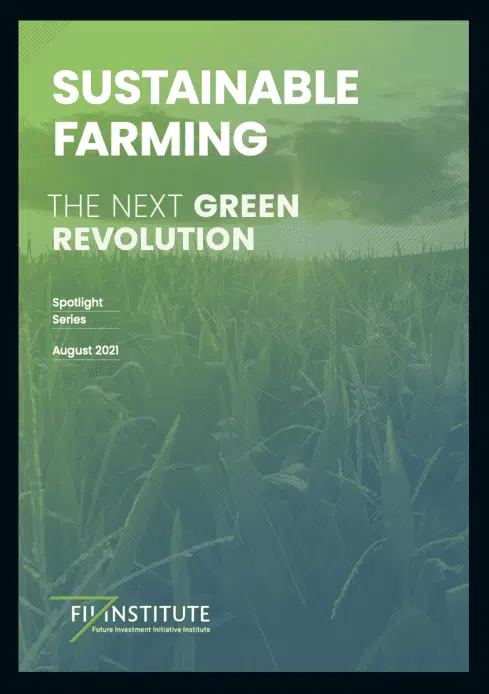
In the Green Revolution of the 1960s and ’70s, high-yield crops and agro-tech dramatically increased land productivity and food output. This time it’s different: To feed a growing population and to cope with harsh environmental constraints, agriculture must increase resource productivity and sustainability. This requires a New Green Revolution.
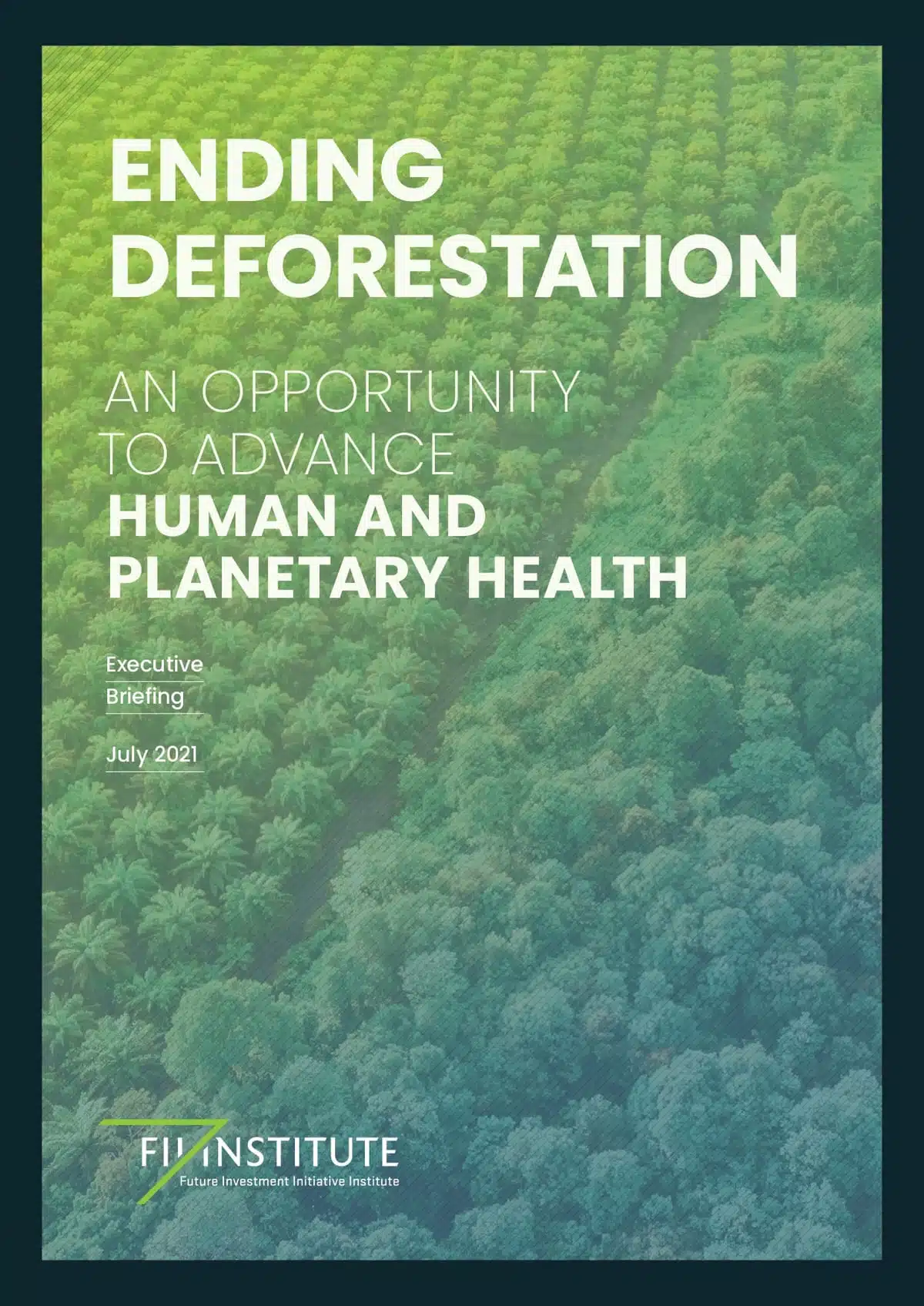
Explore the pressing issue of deforestation, its impact on climate change, biodiversity, and human health, and the global action needed to address it.
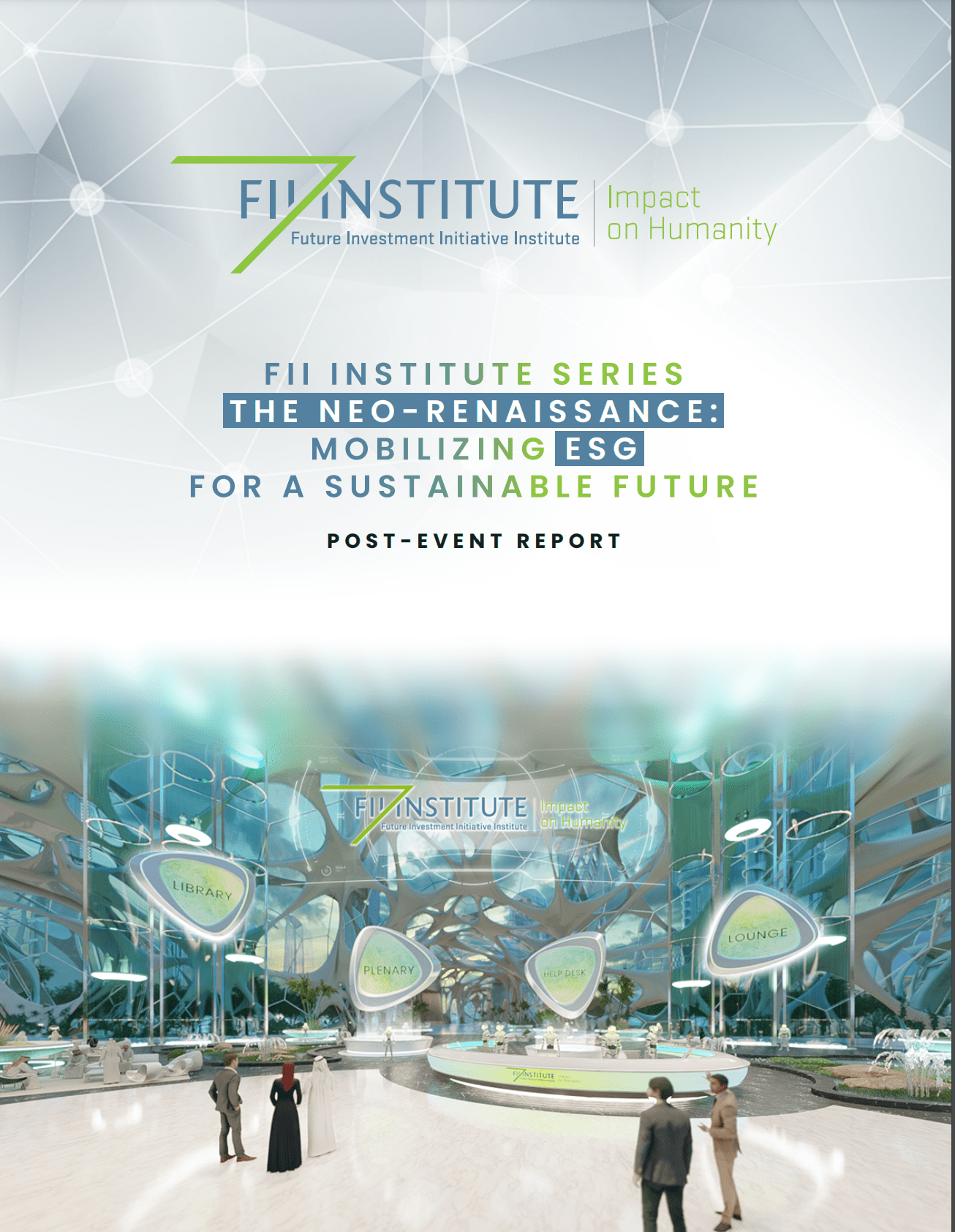
With the beginning of economic recovery in sight, attention is turning to the kind of future we want to live in. we have an unprecedented opportunity to build a sustainable world characterized by just and inclusive growth.
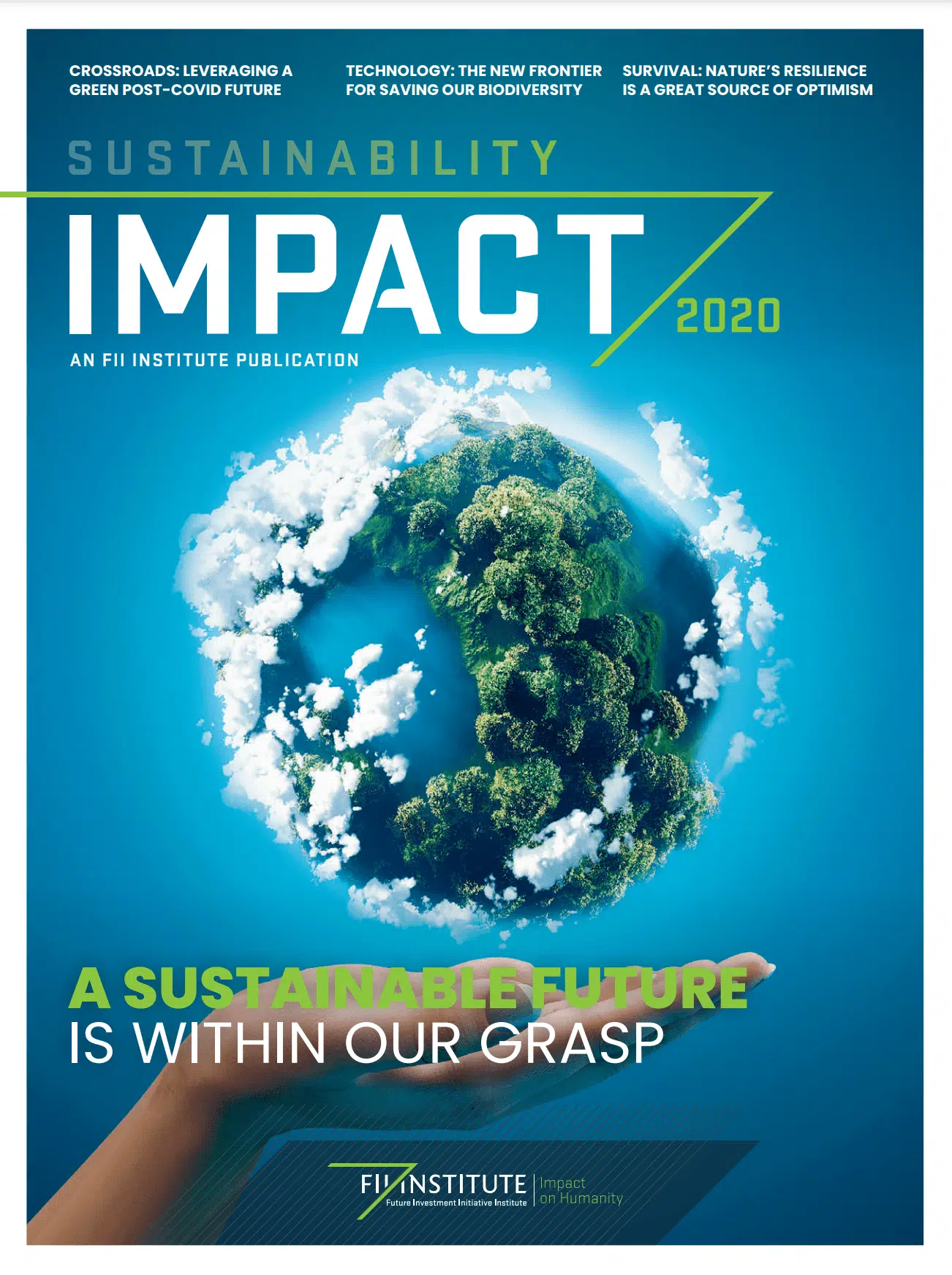
We published this Impact report as the world sits at a crossroads, being pulled in two directions. Covid-19 has devastated economies as an estimated 1.6 billion workers globally face threatened livelihoods. Economic recovery and job creation are now a top priority. At the same time, we face a climate crisis that prevents us from firing up those engines of economic growth that have proved so environmentally damaging in the past.
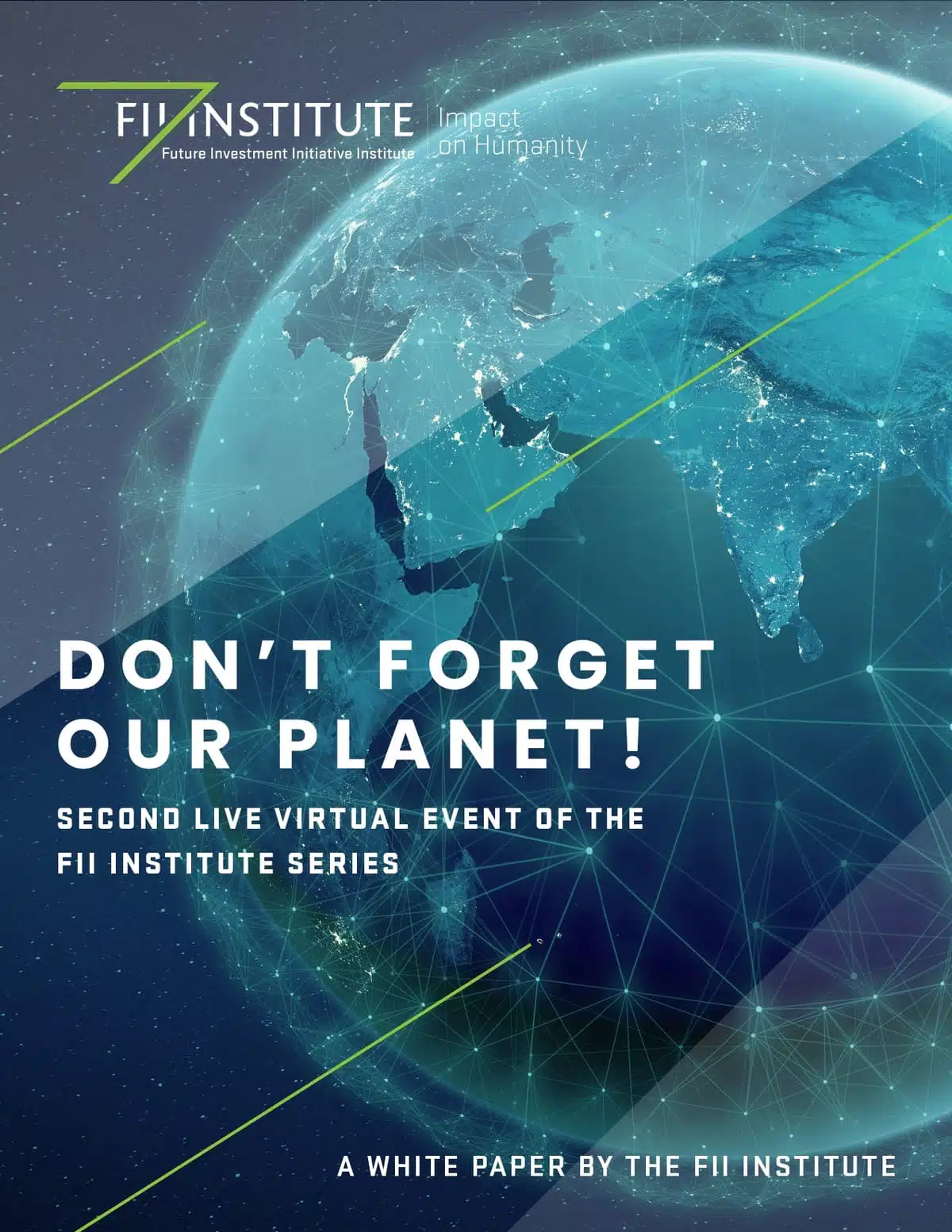
Dive into a green recovery; explore nature-based solutions for a sustainable, resilient future.